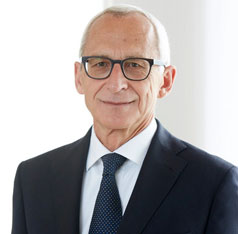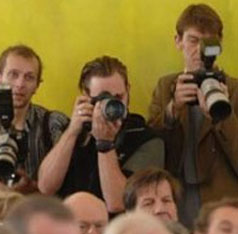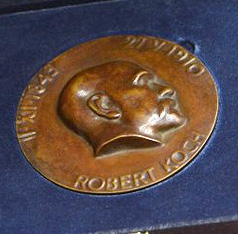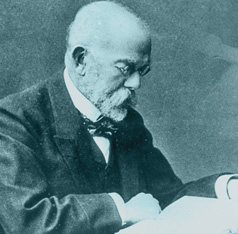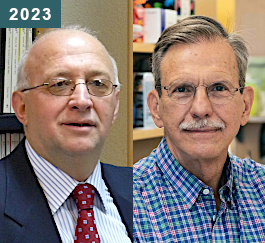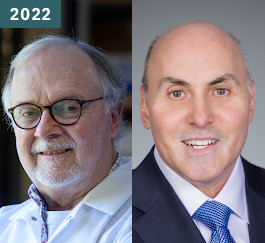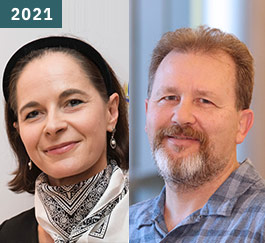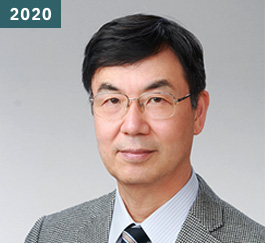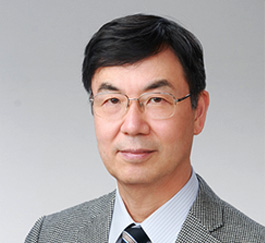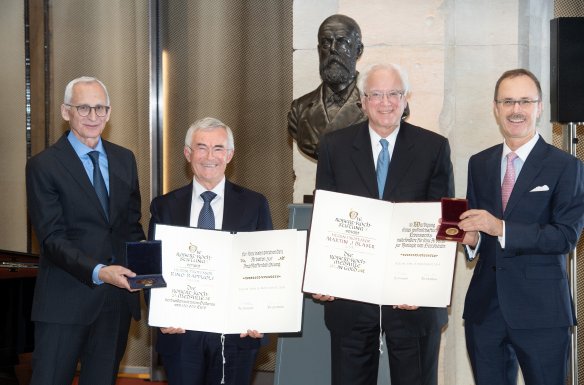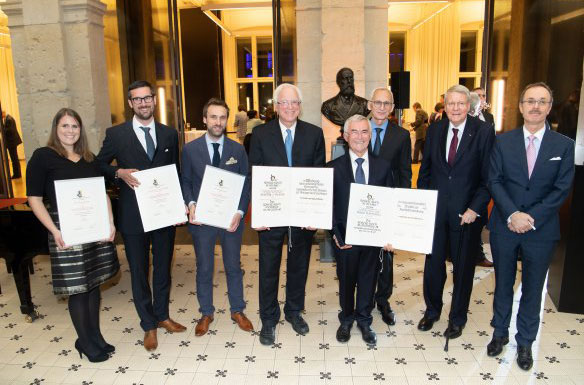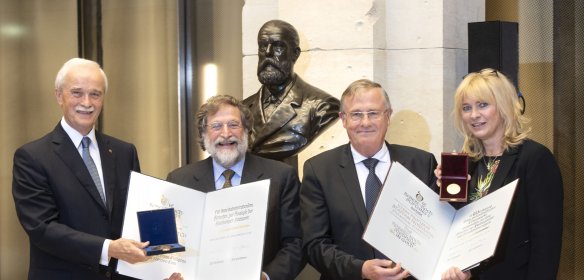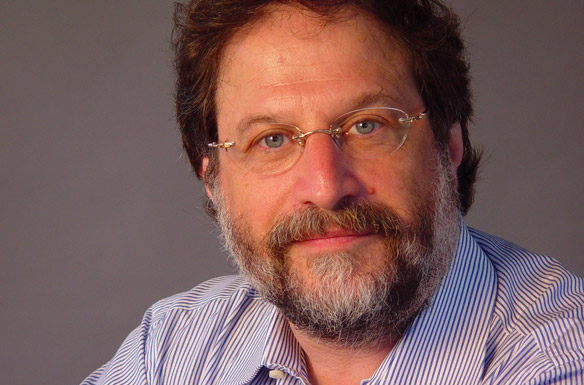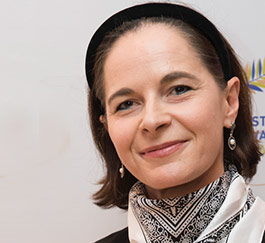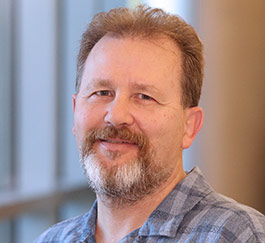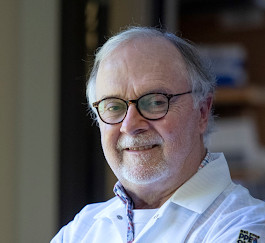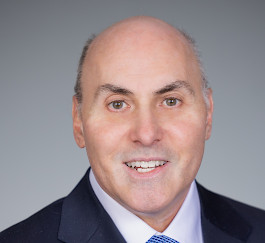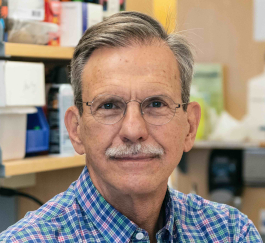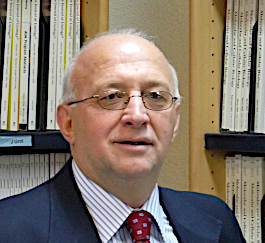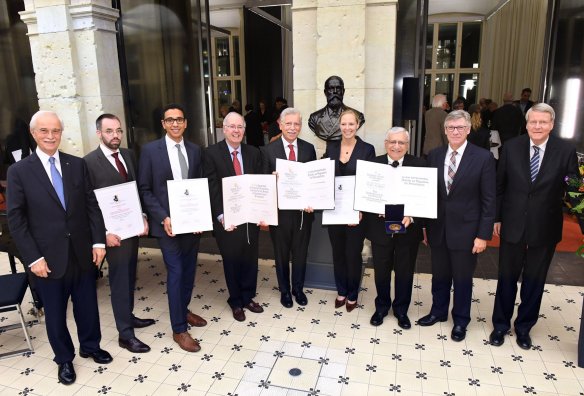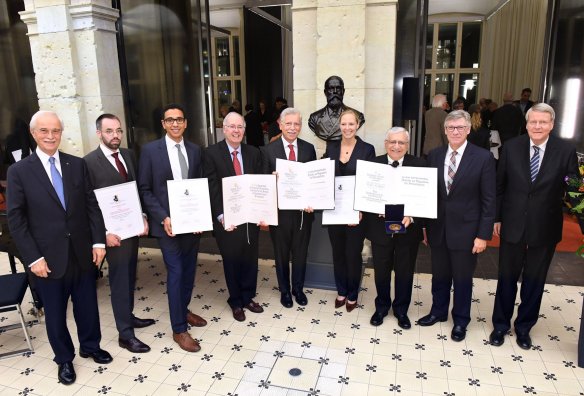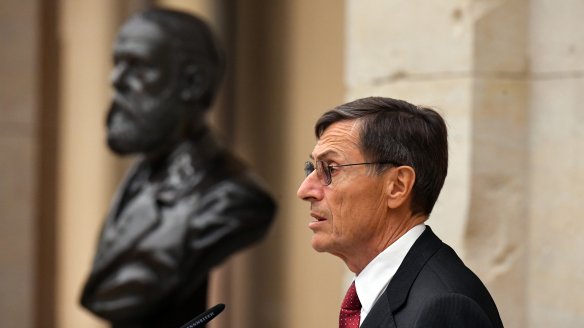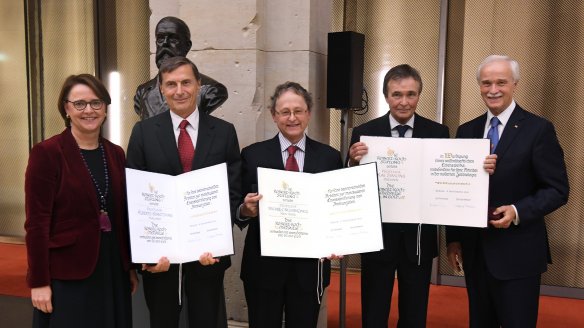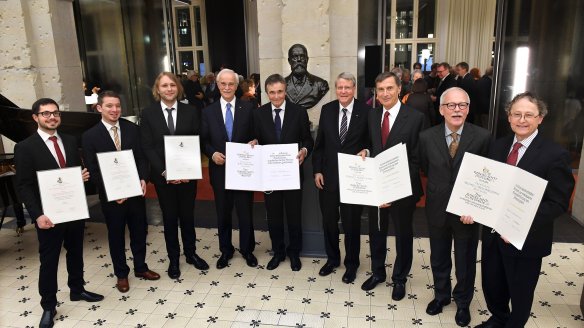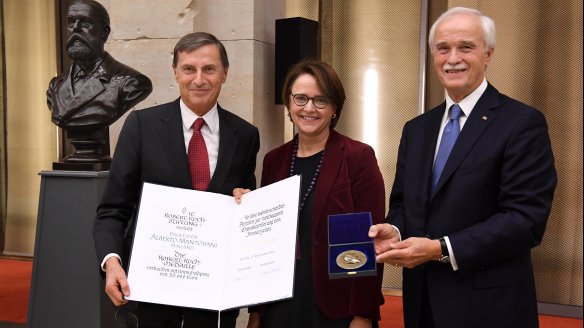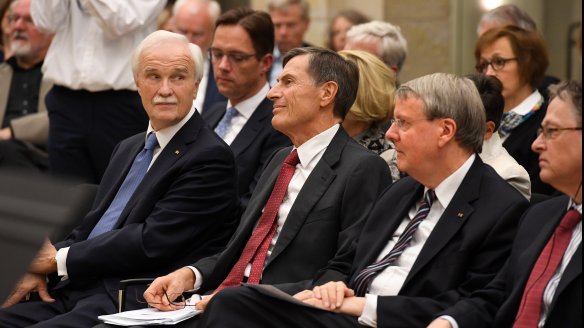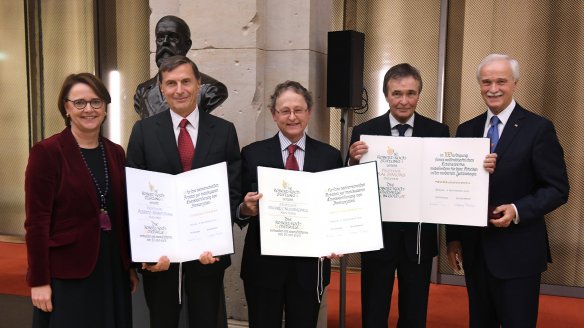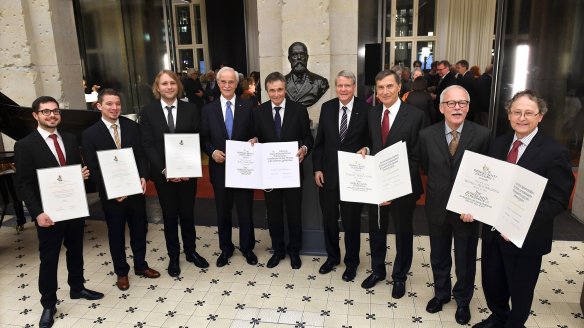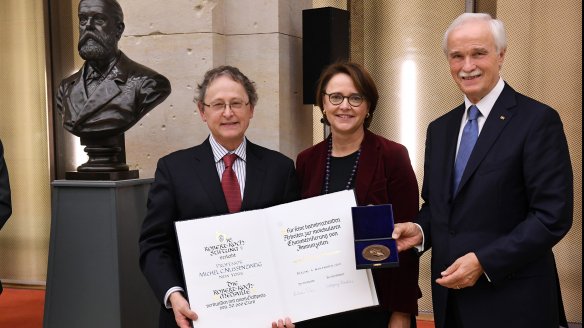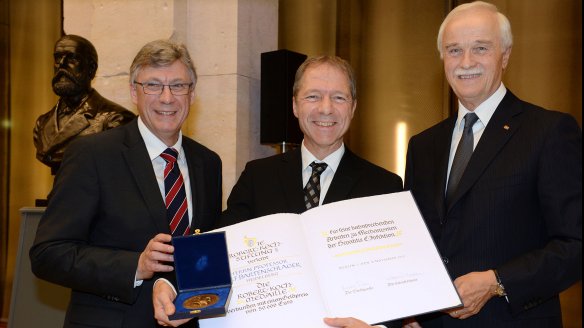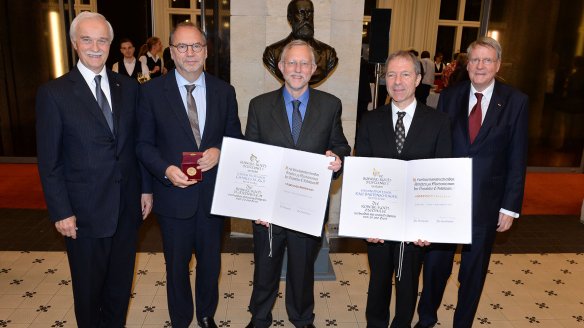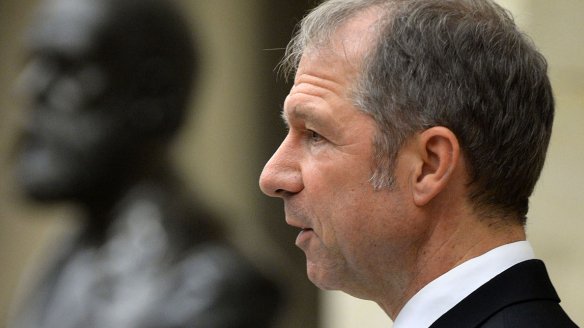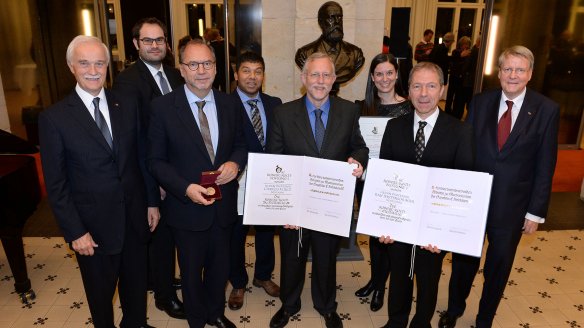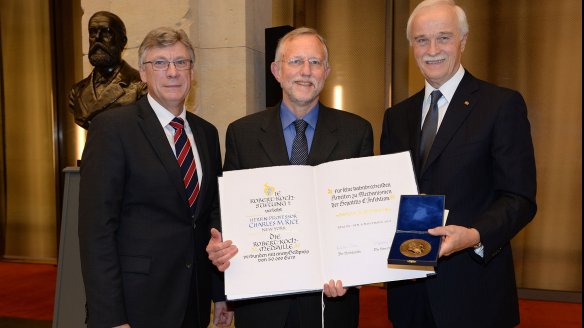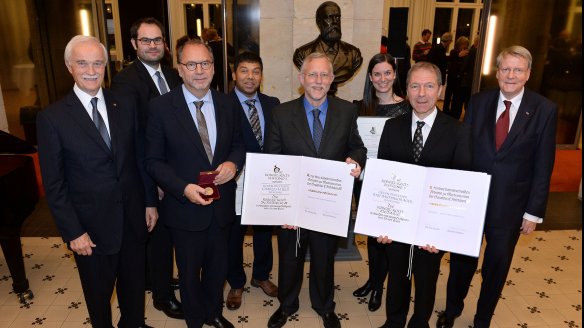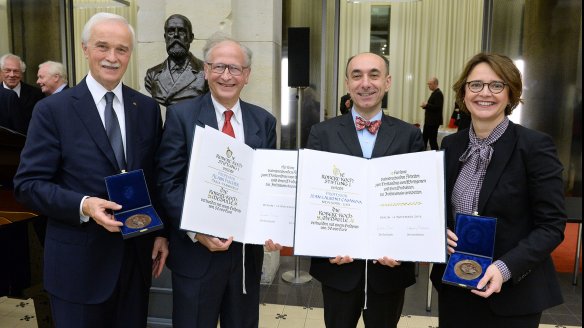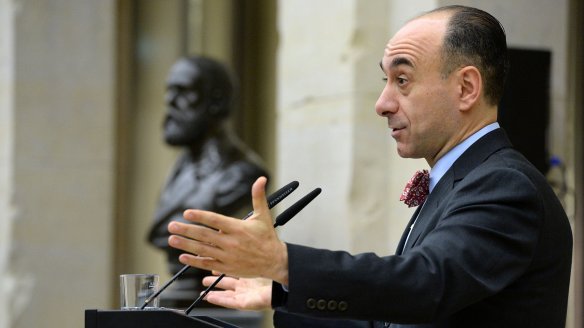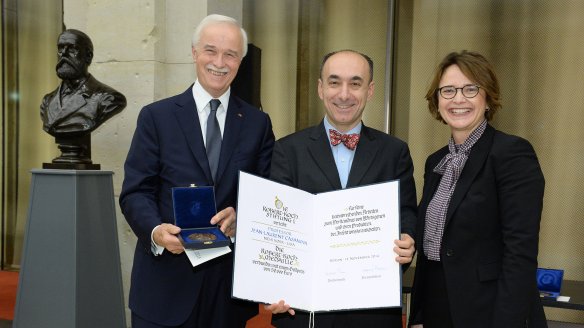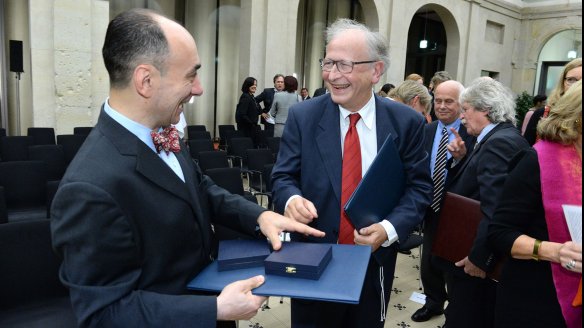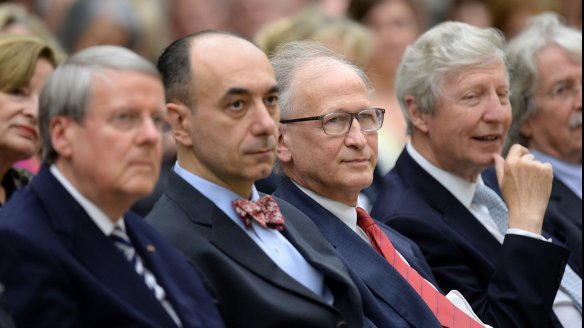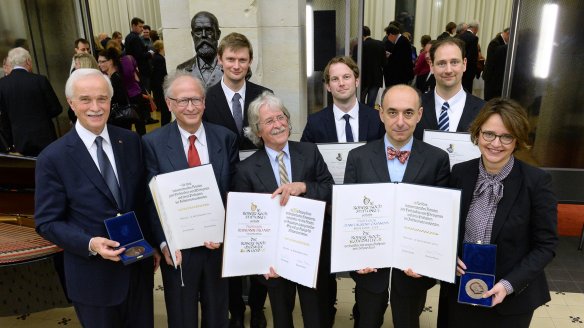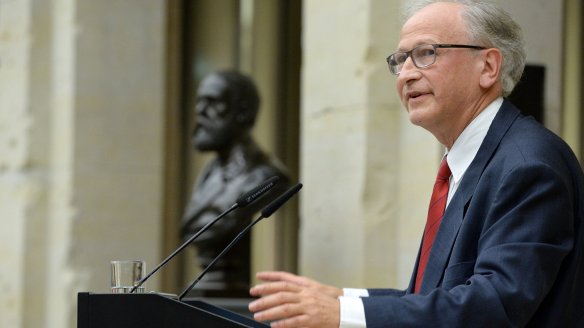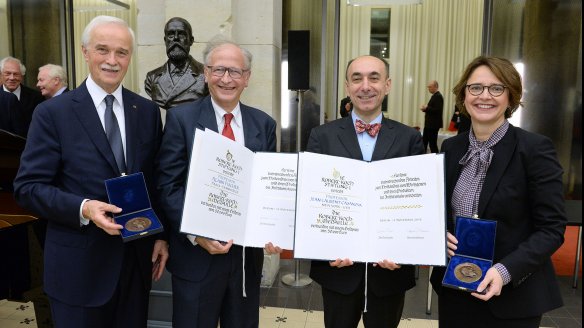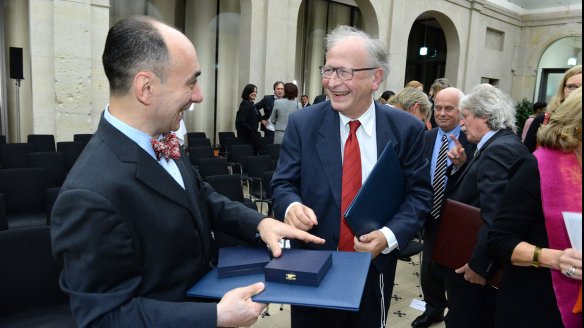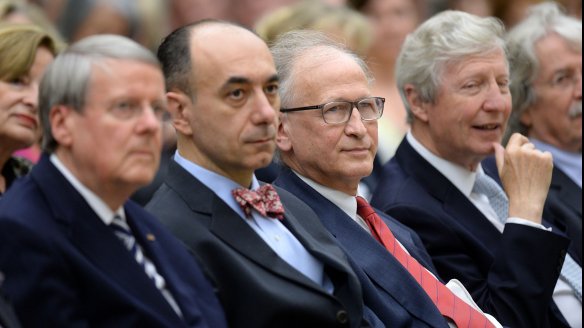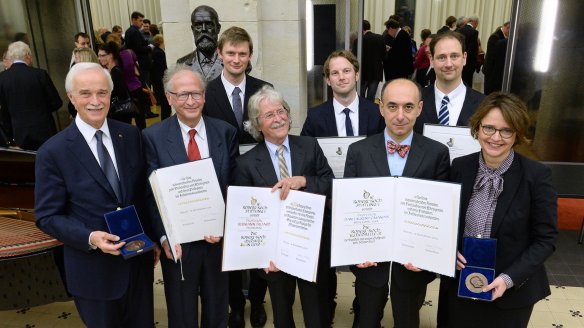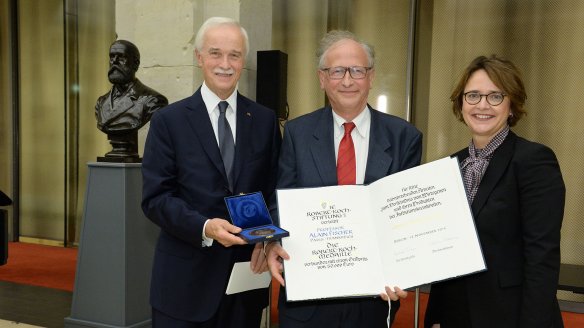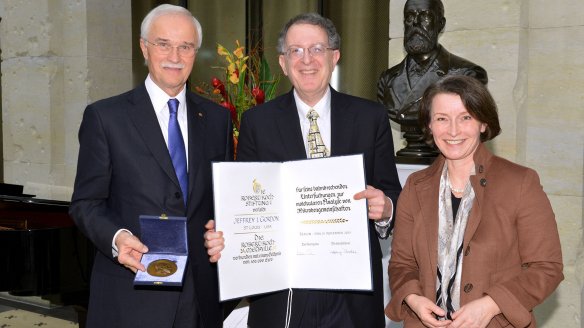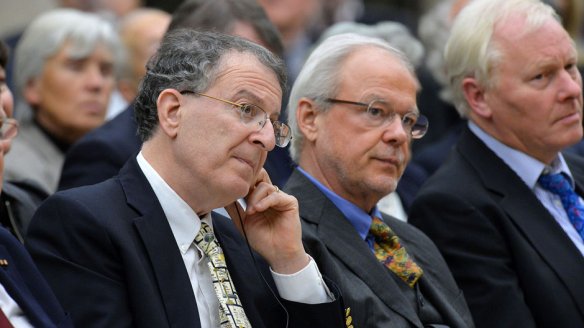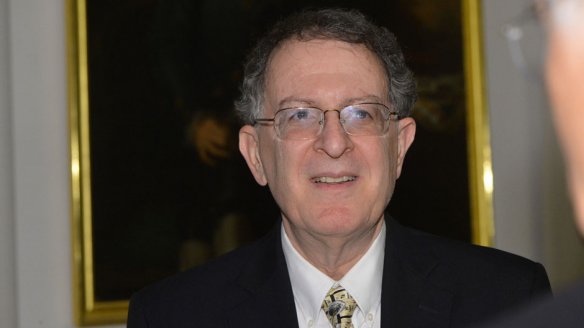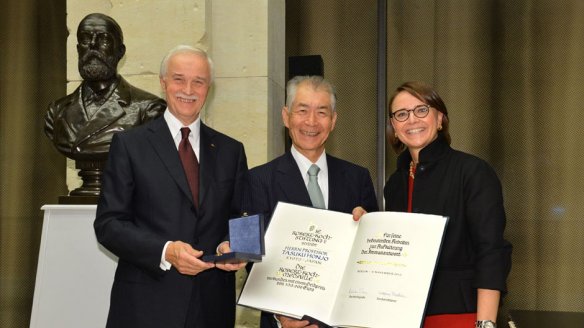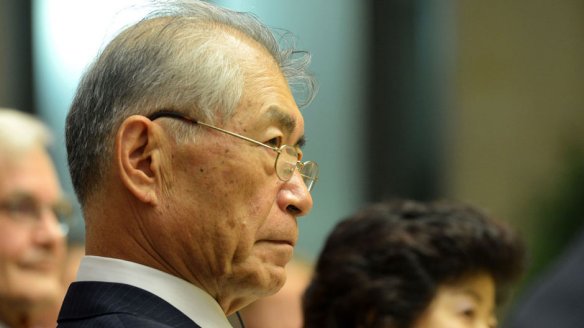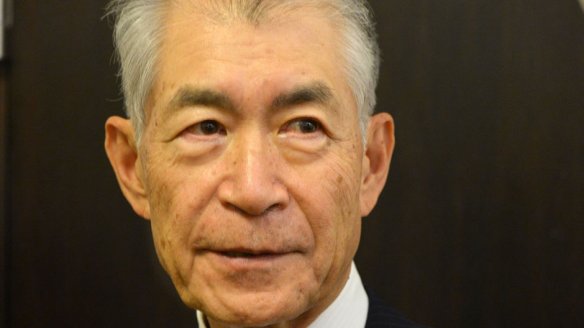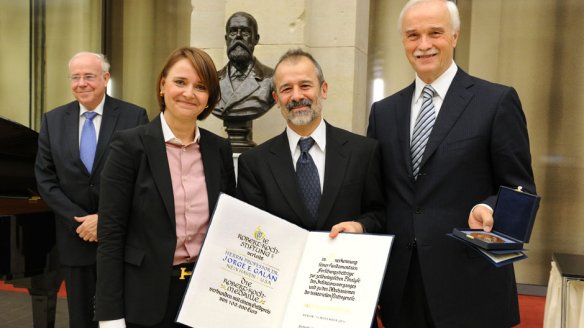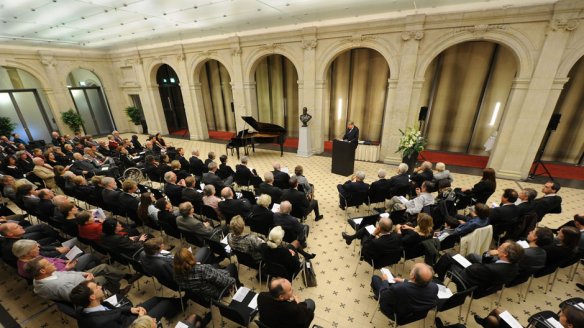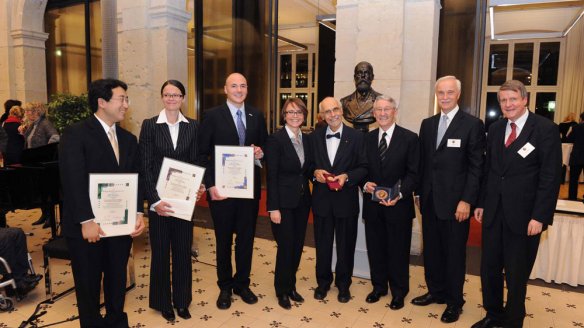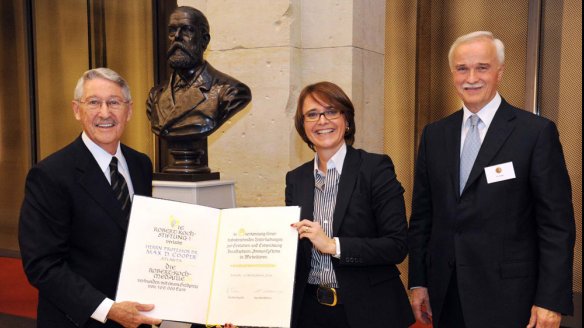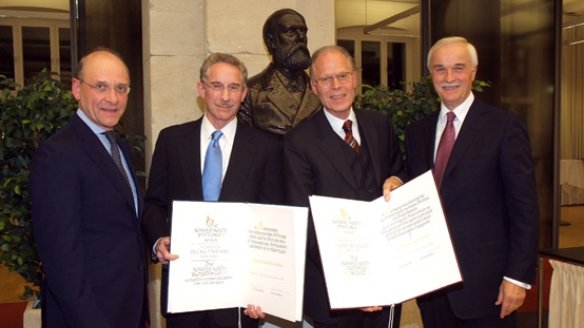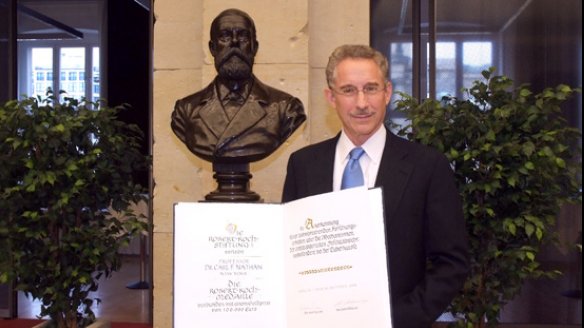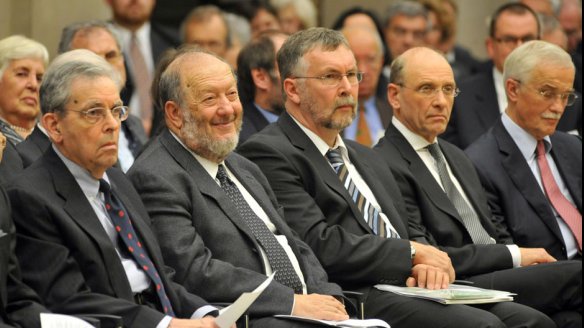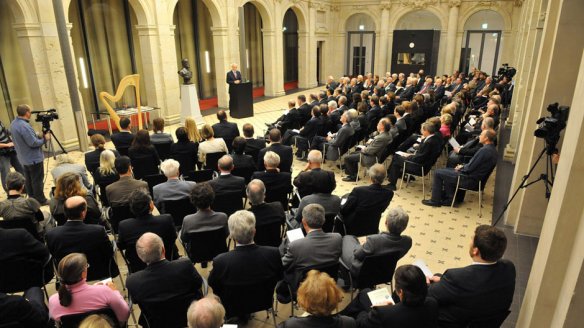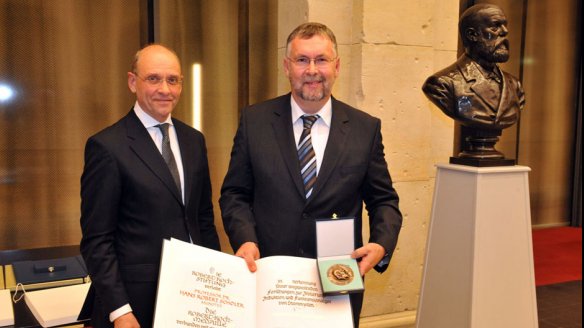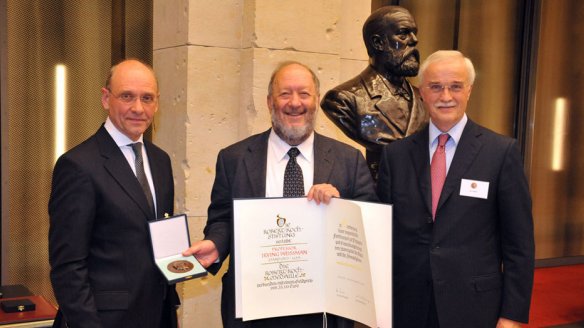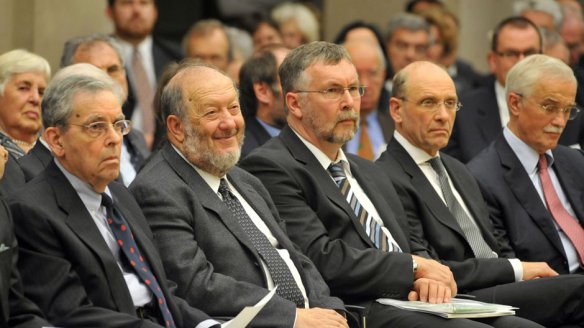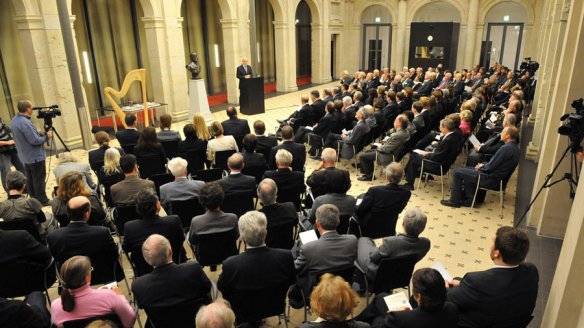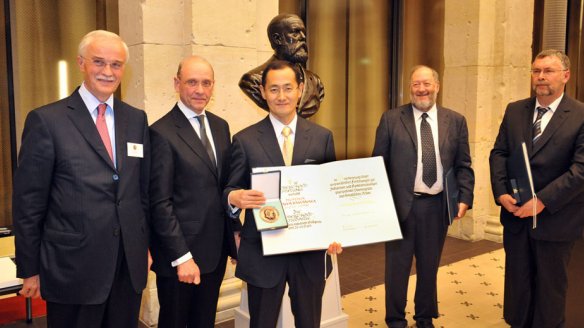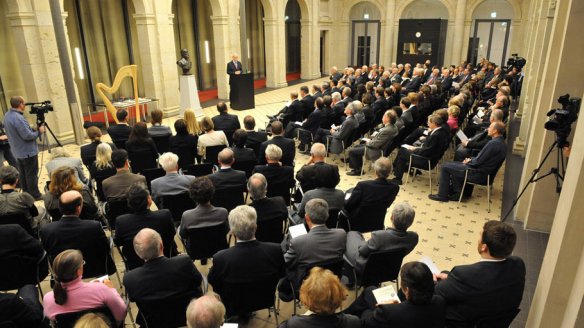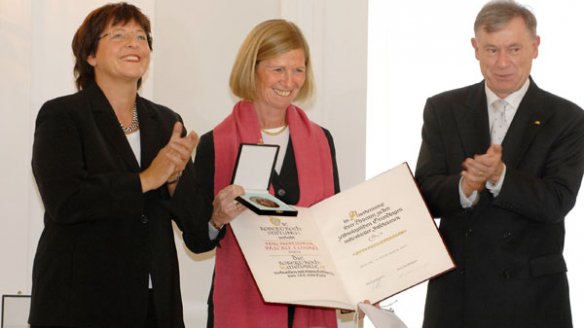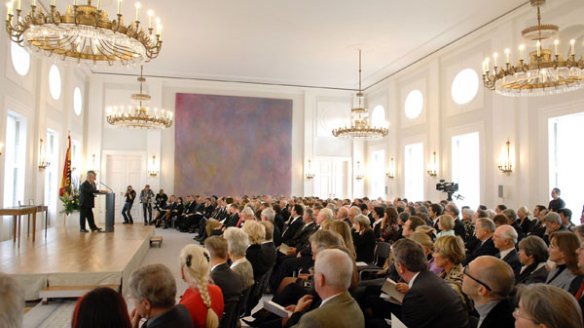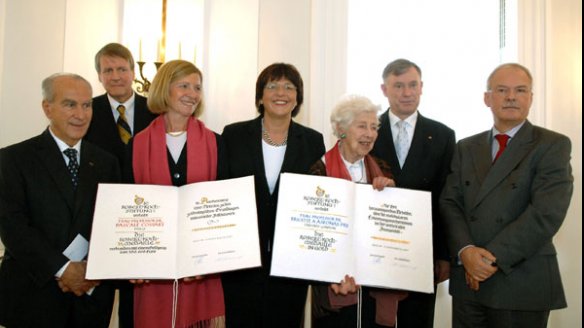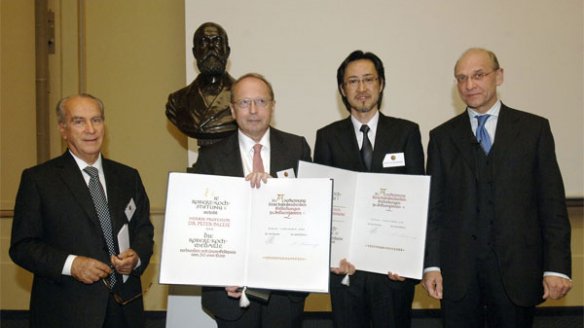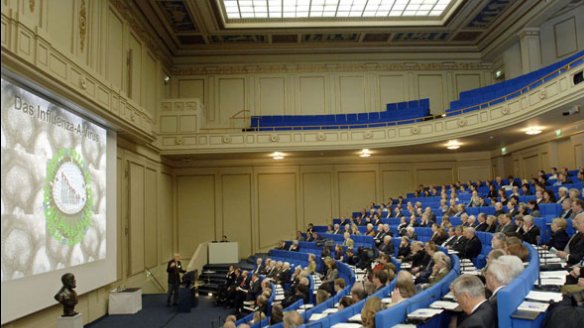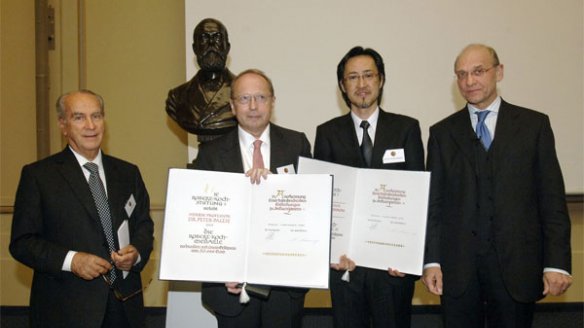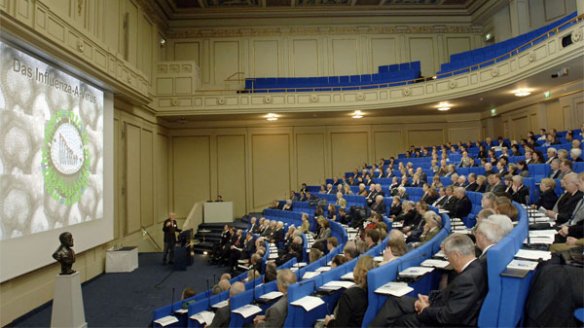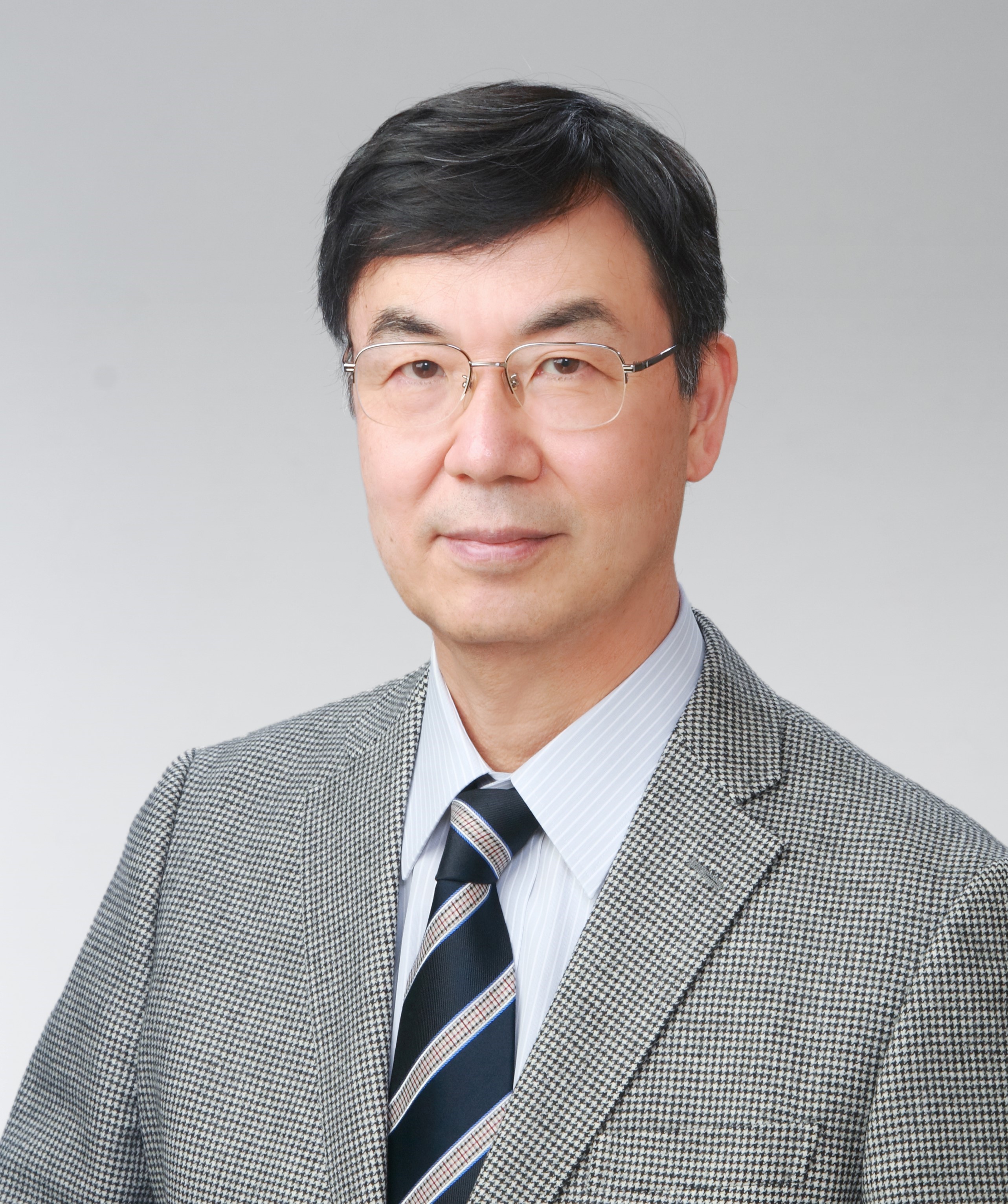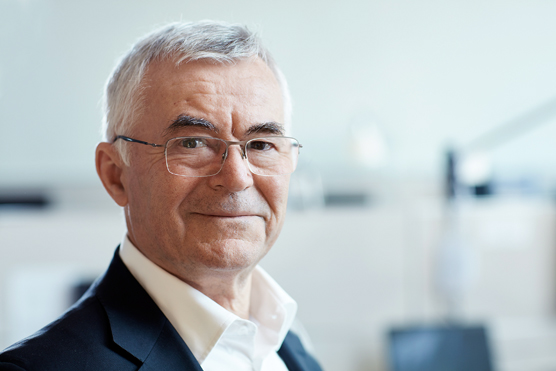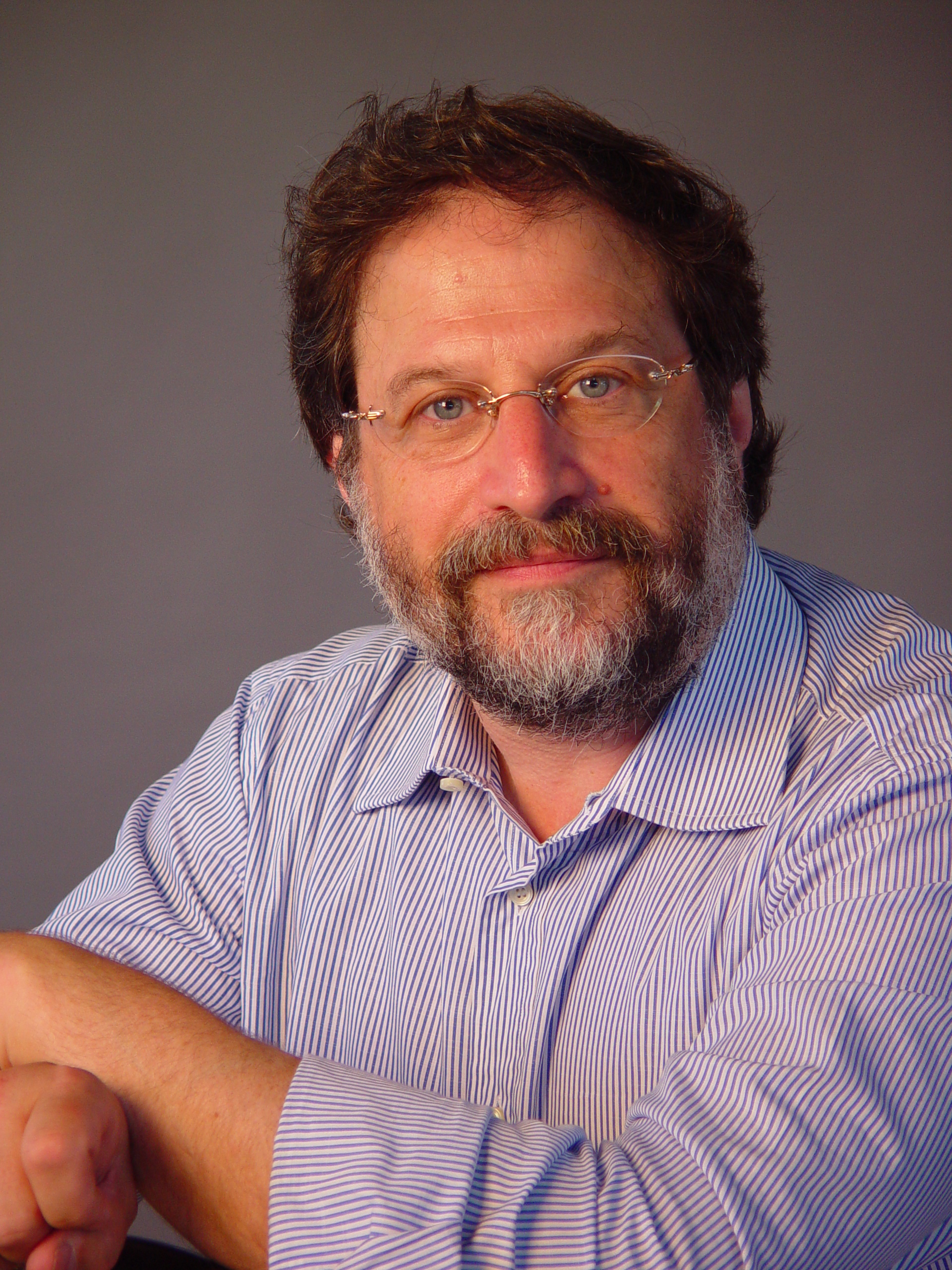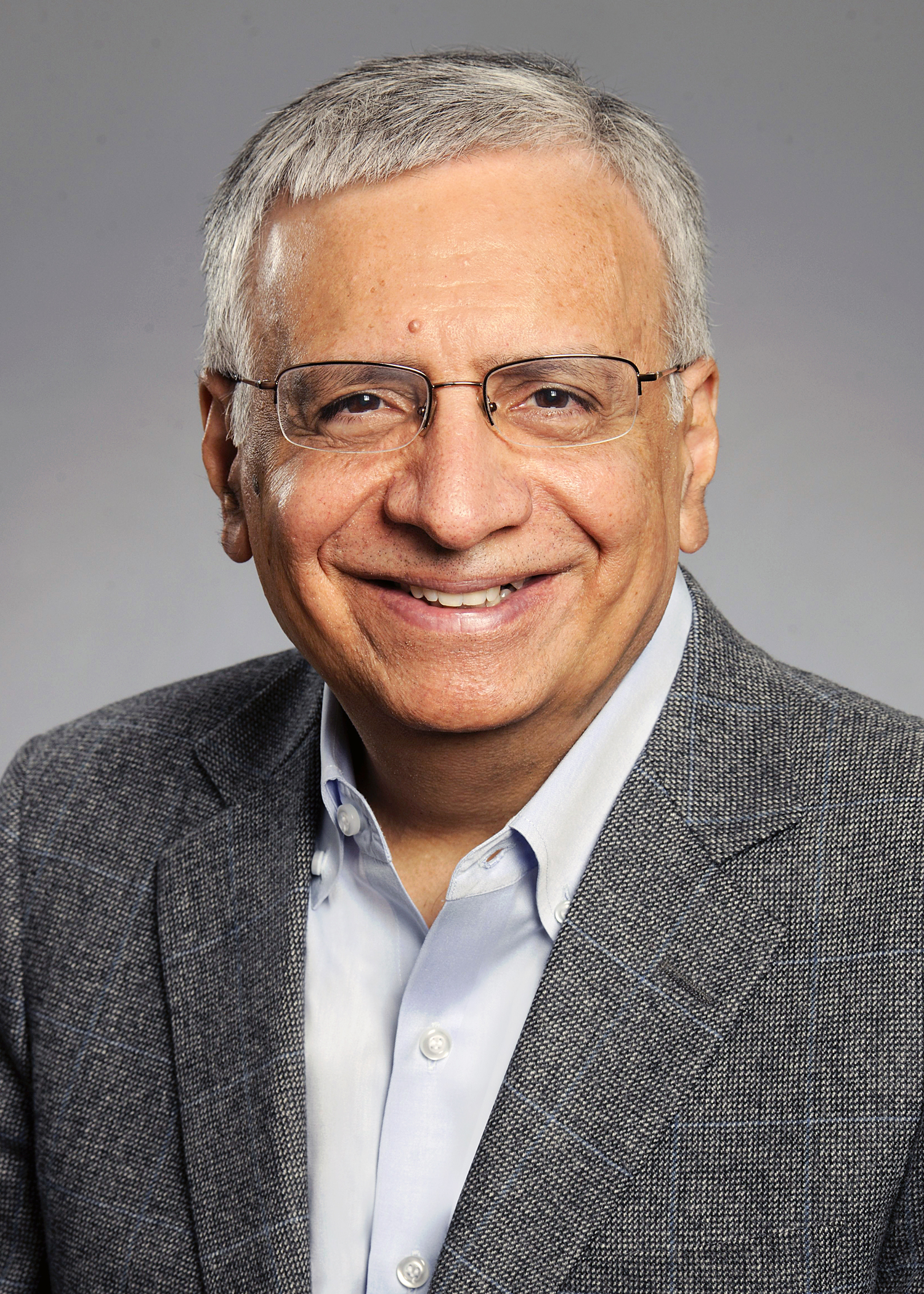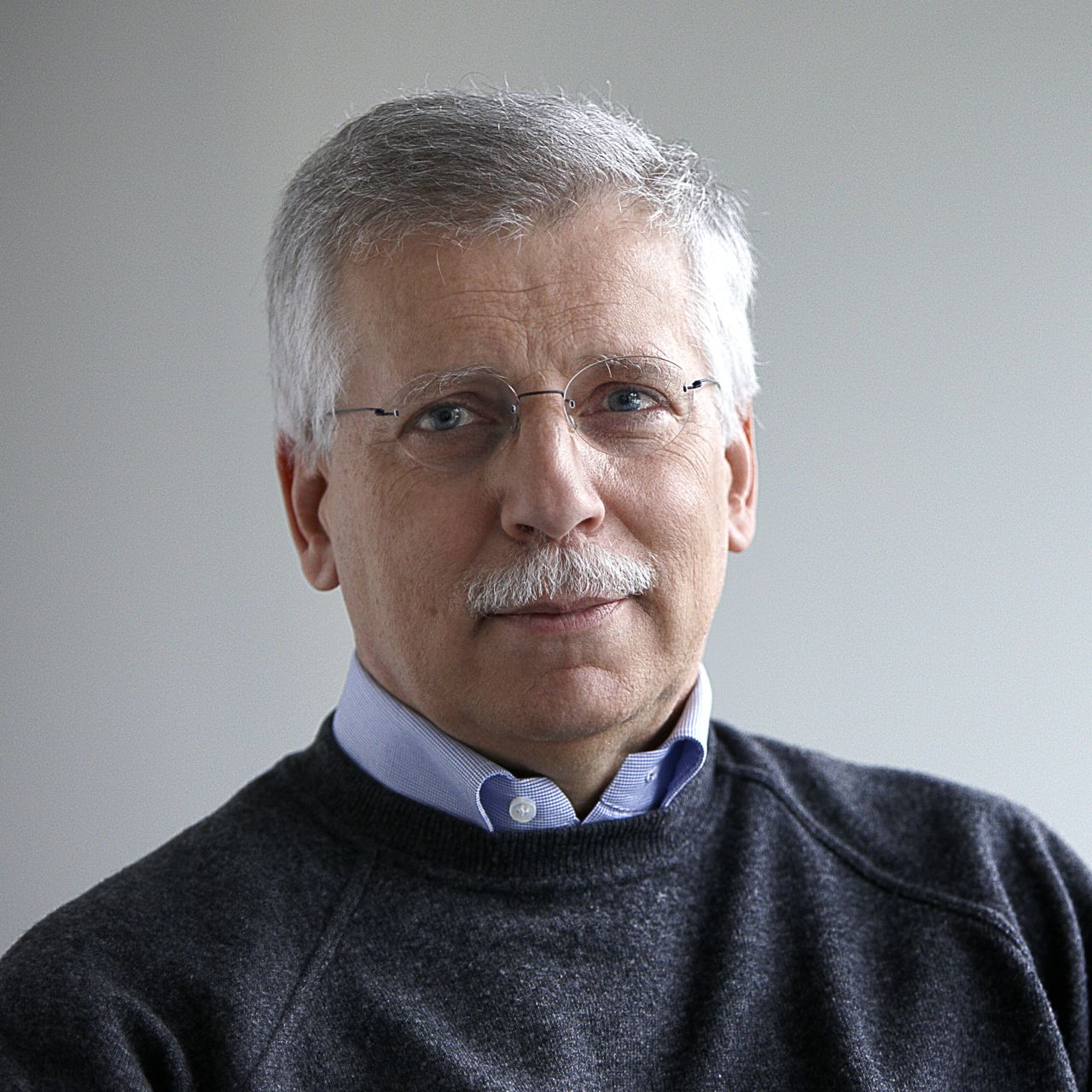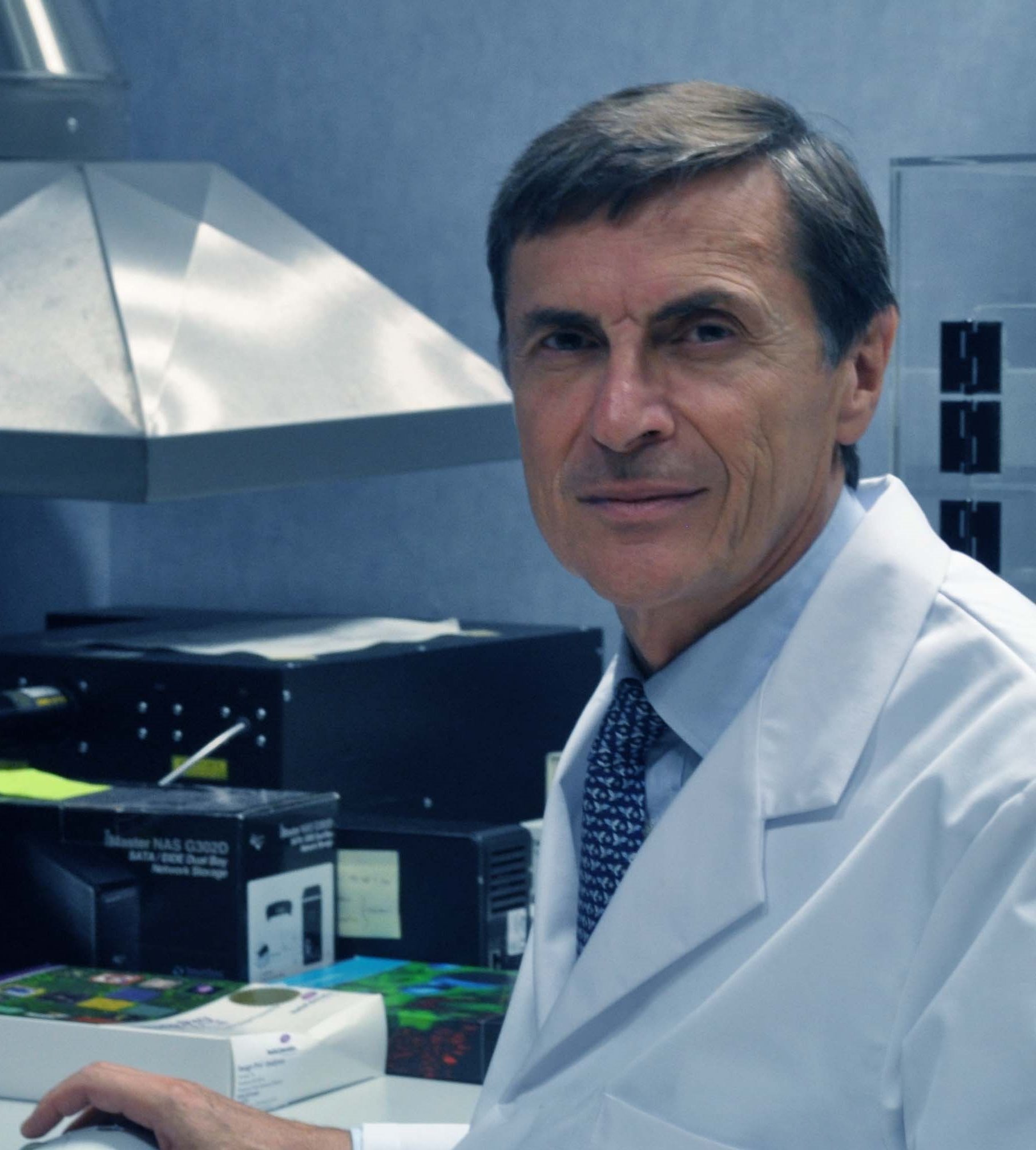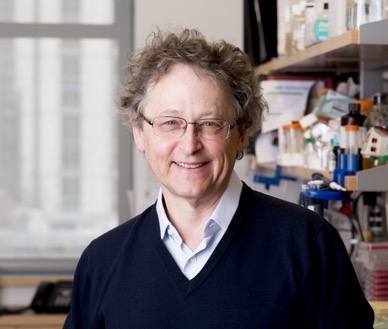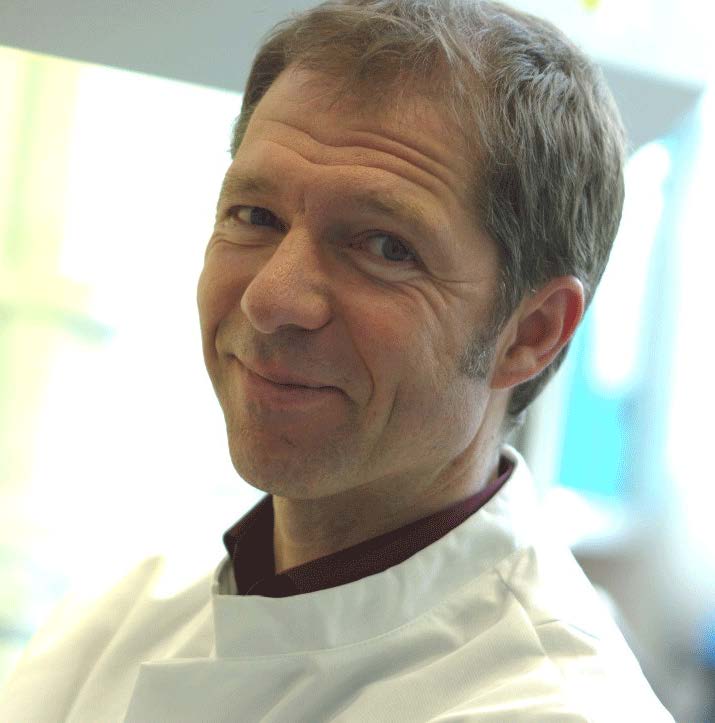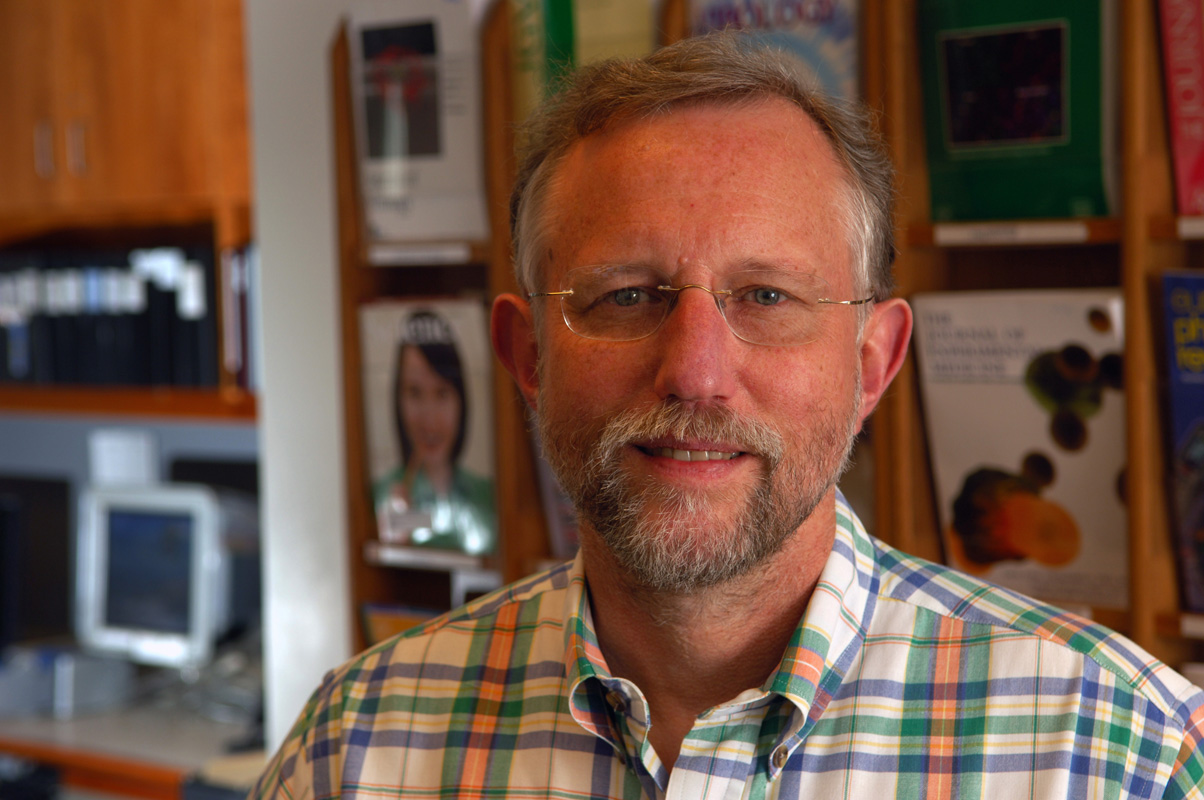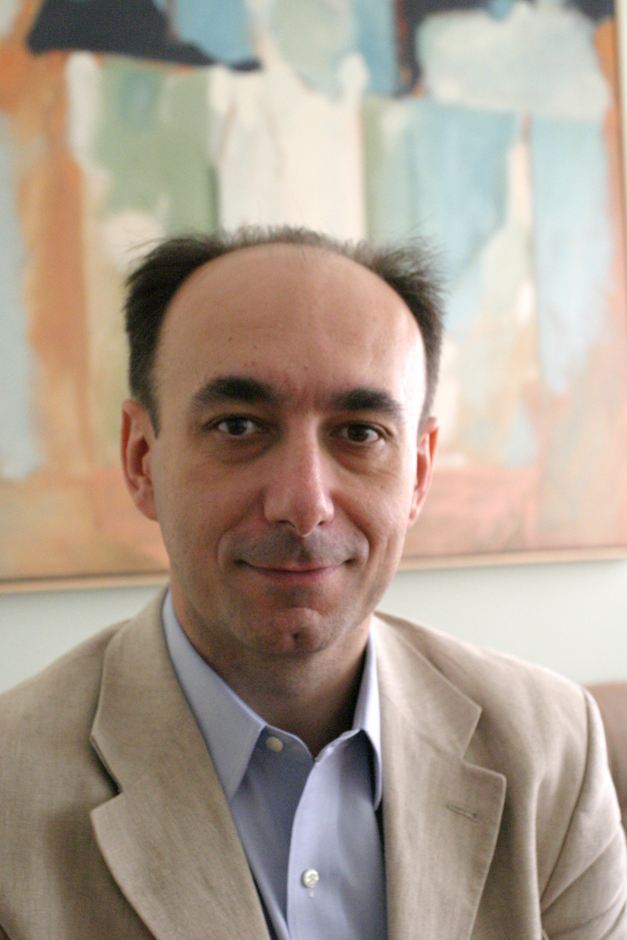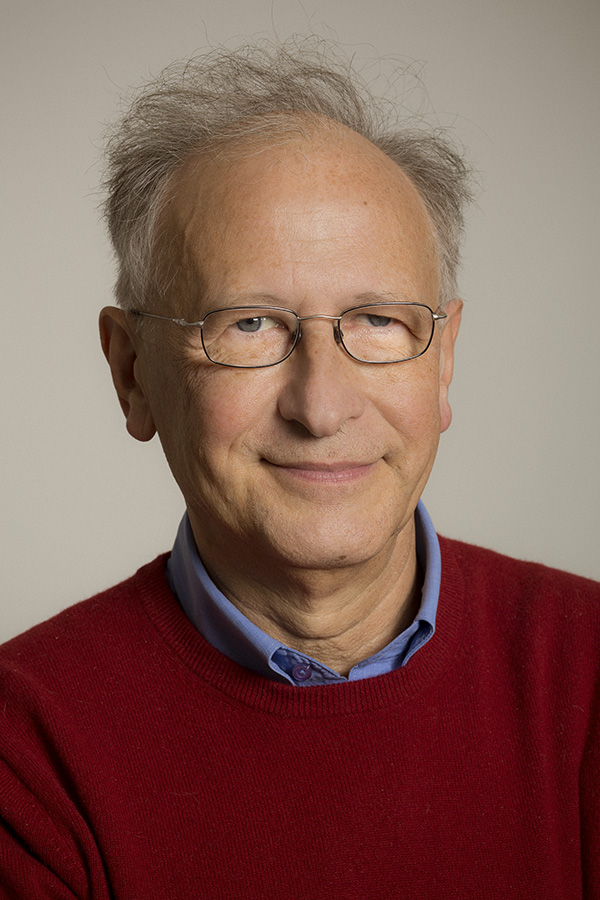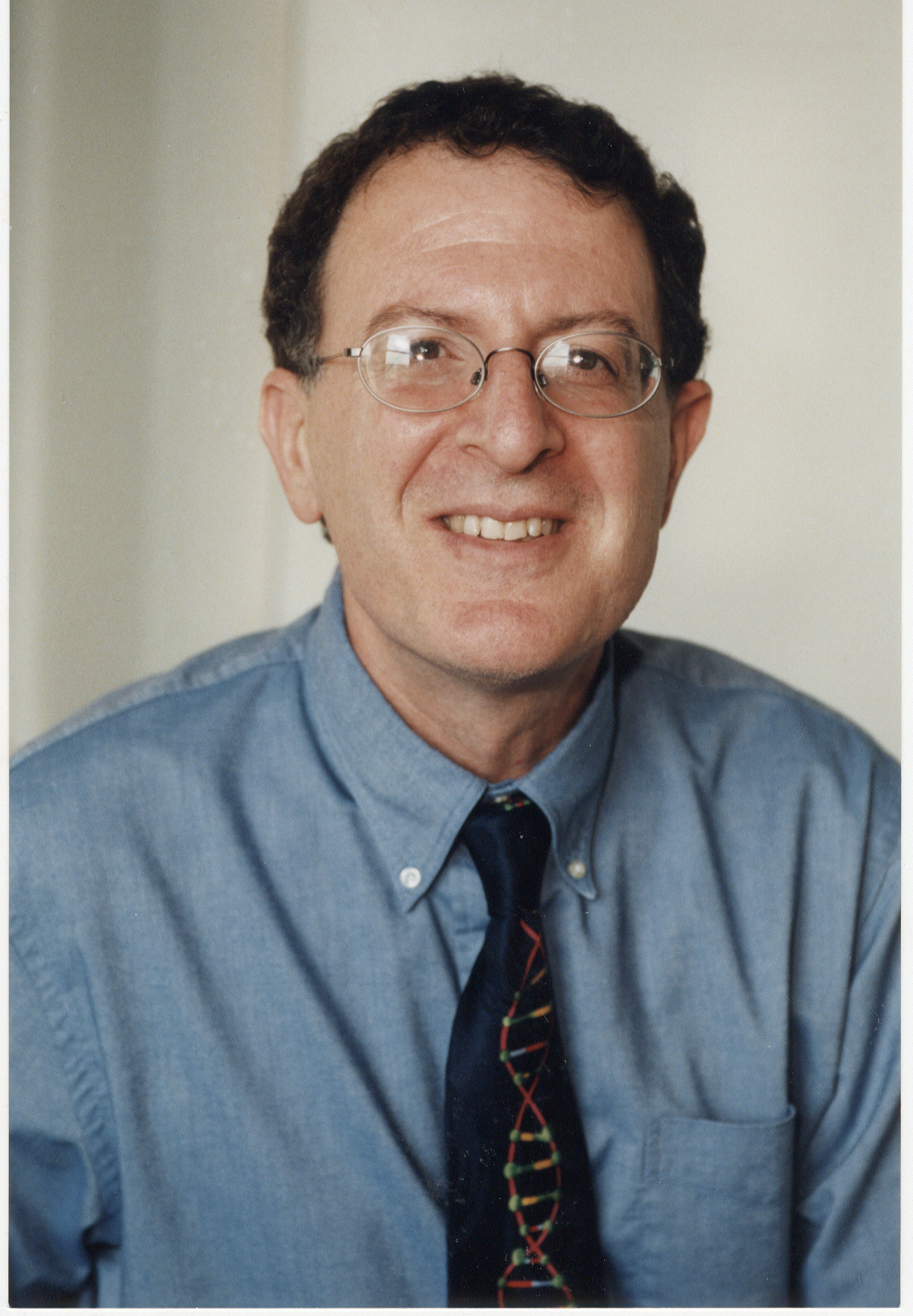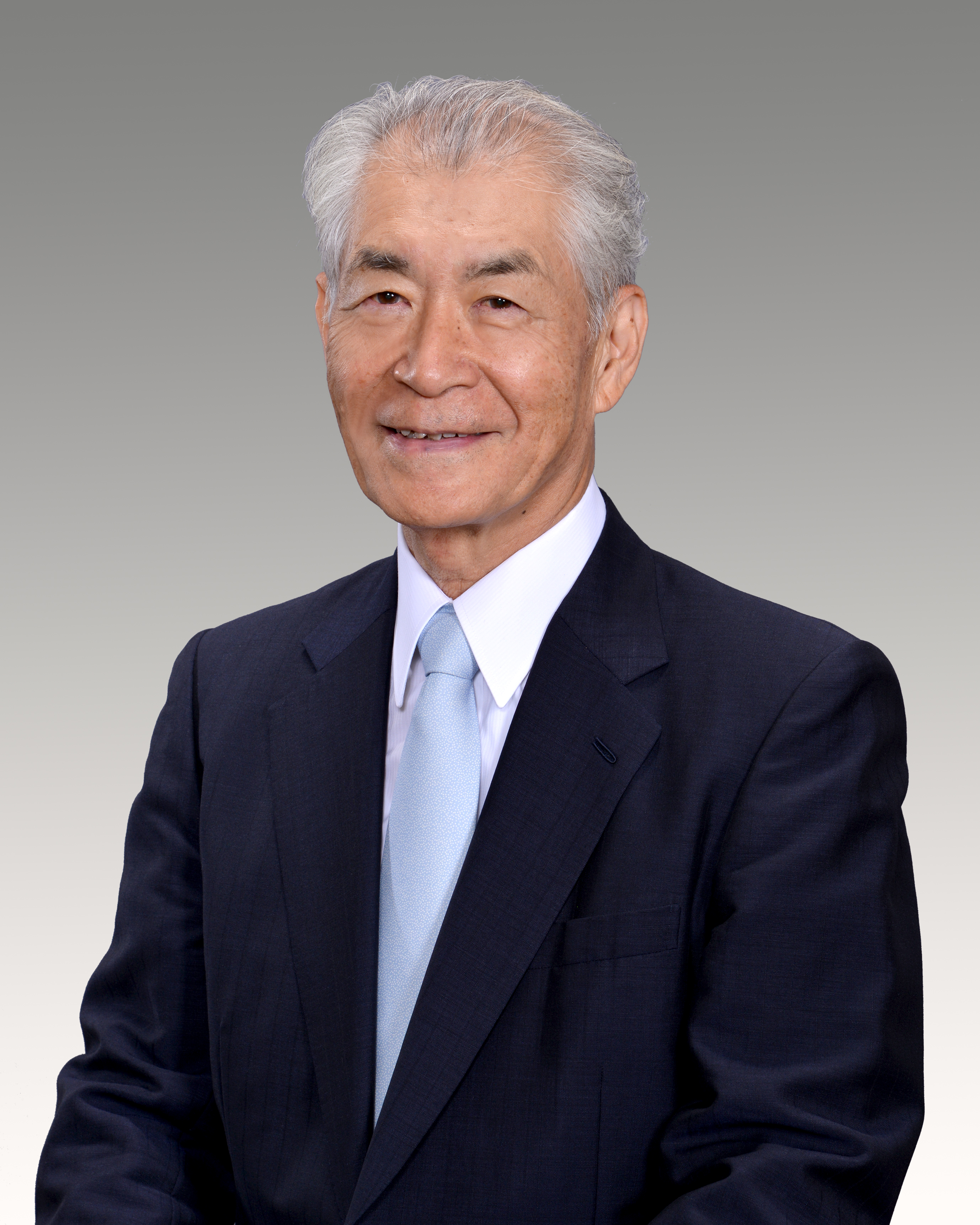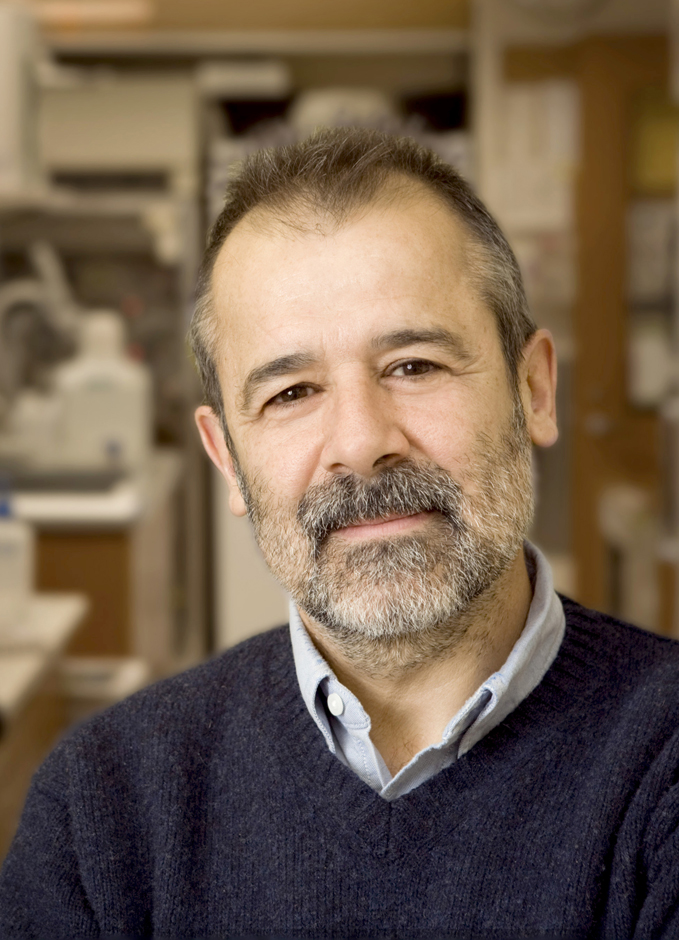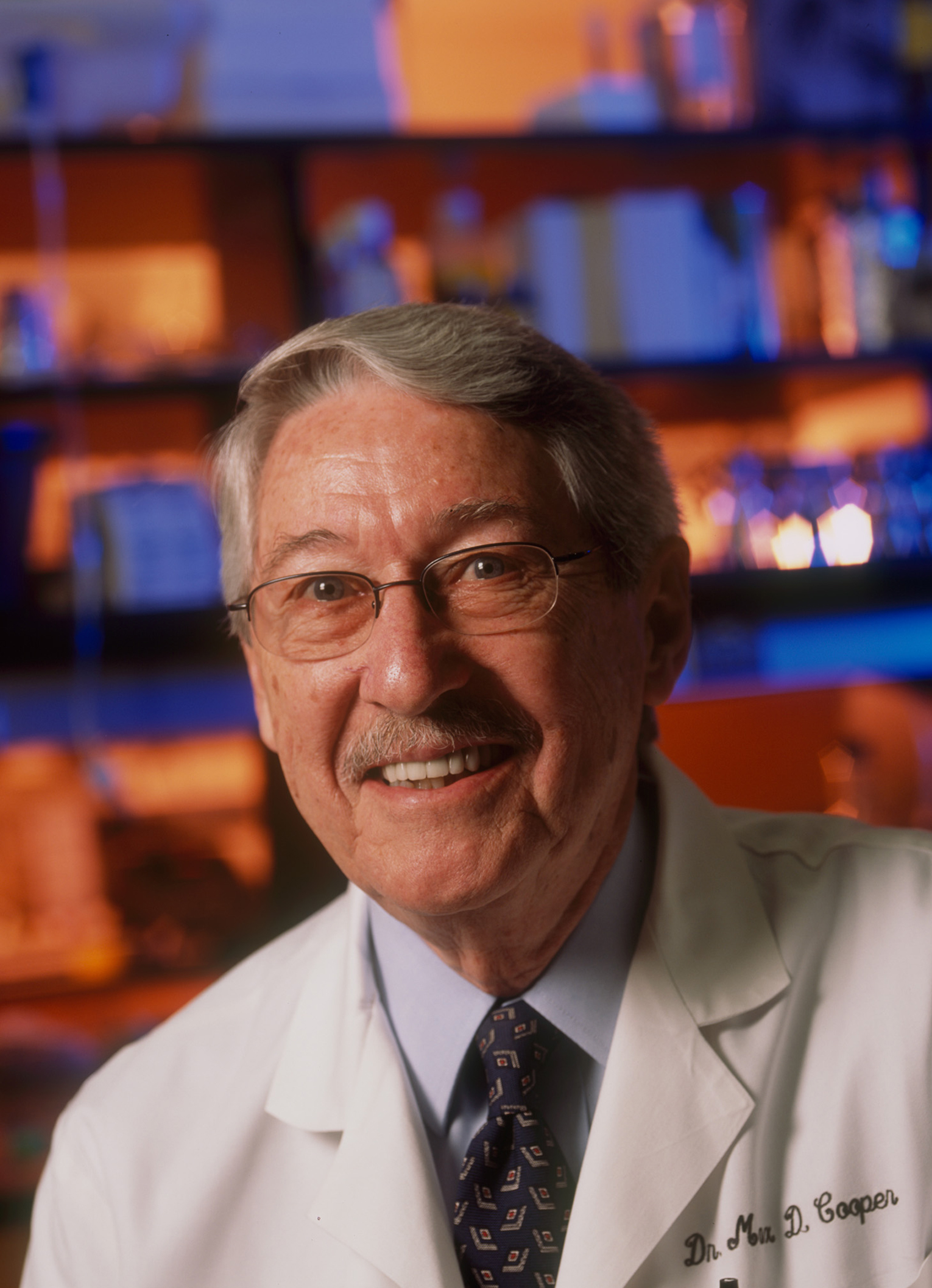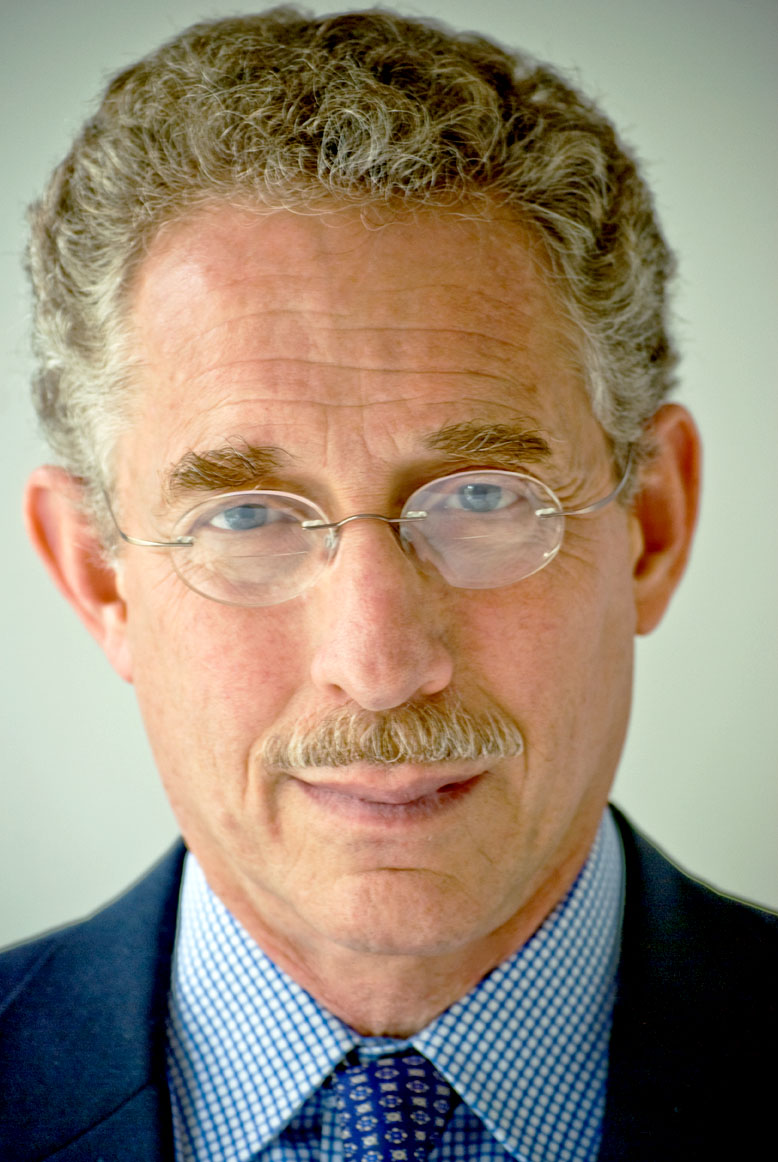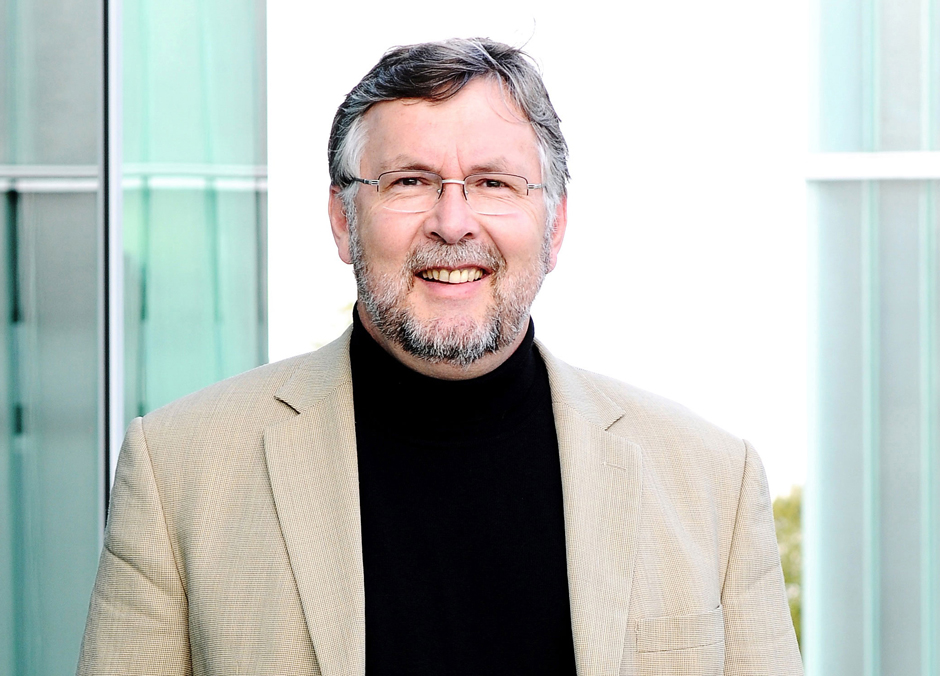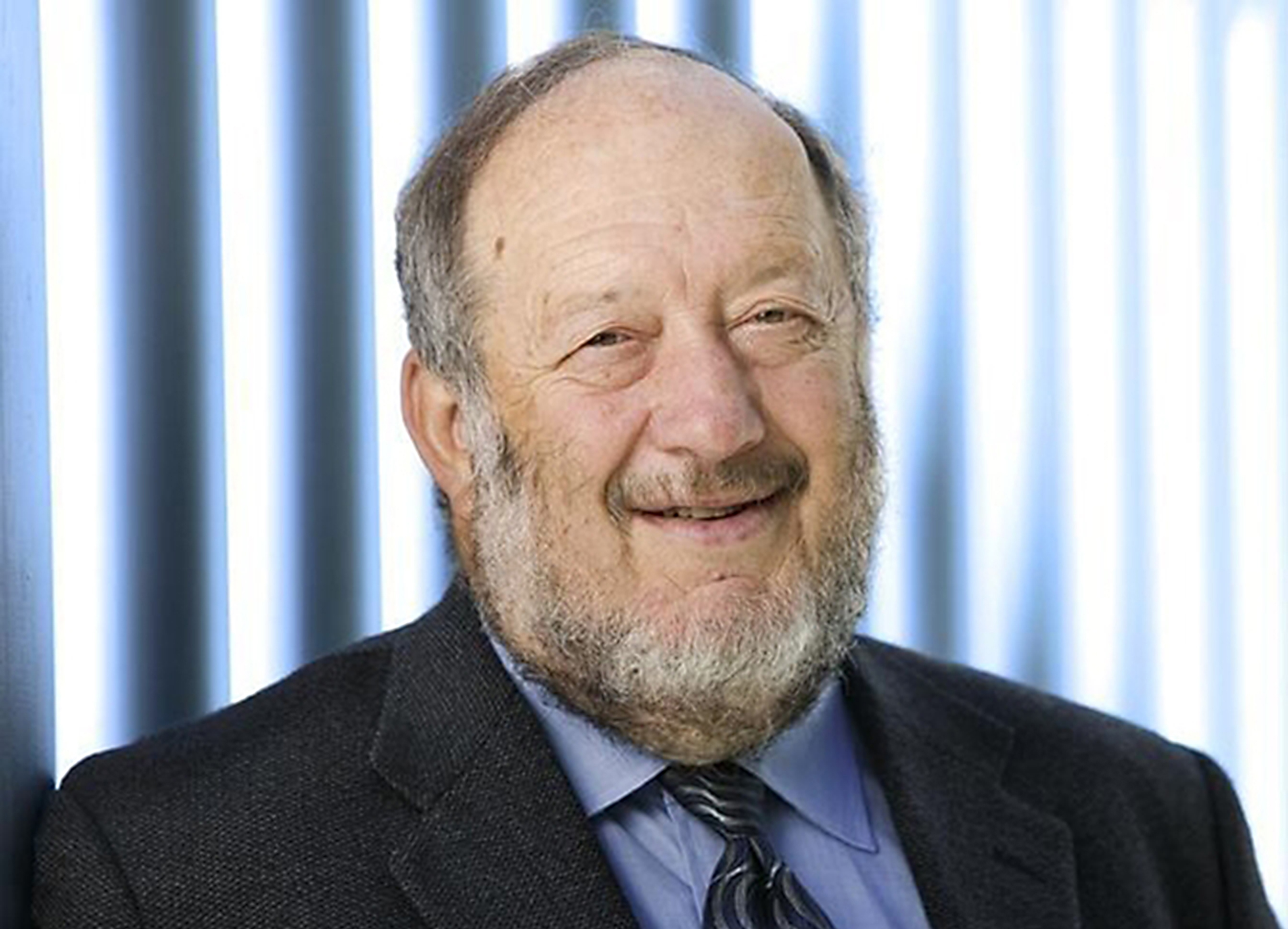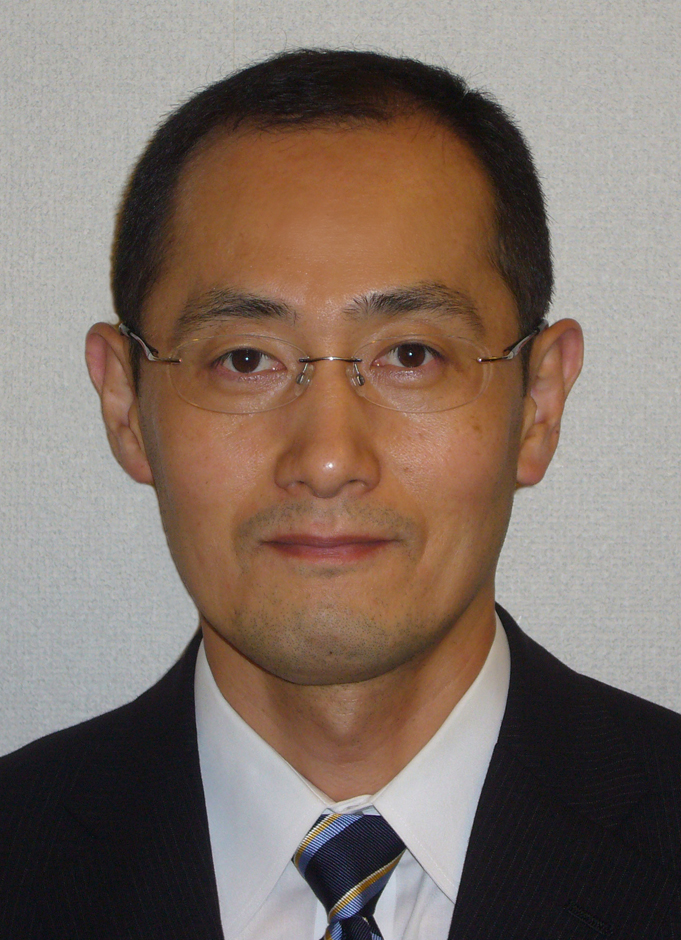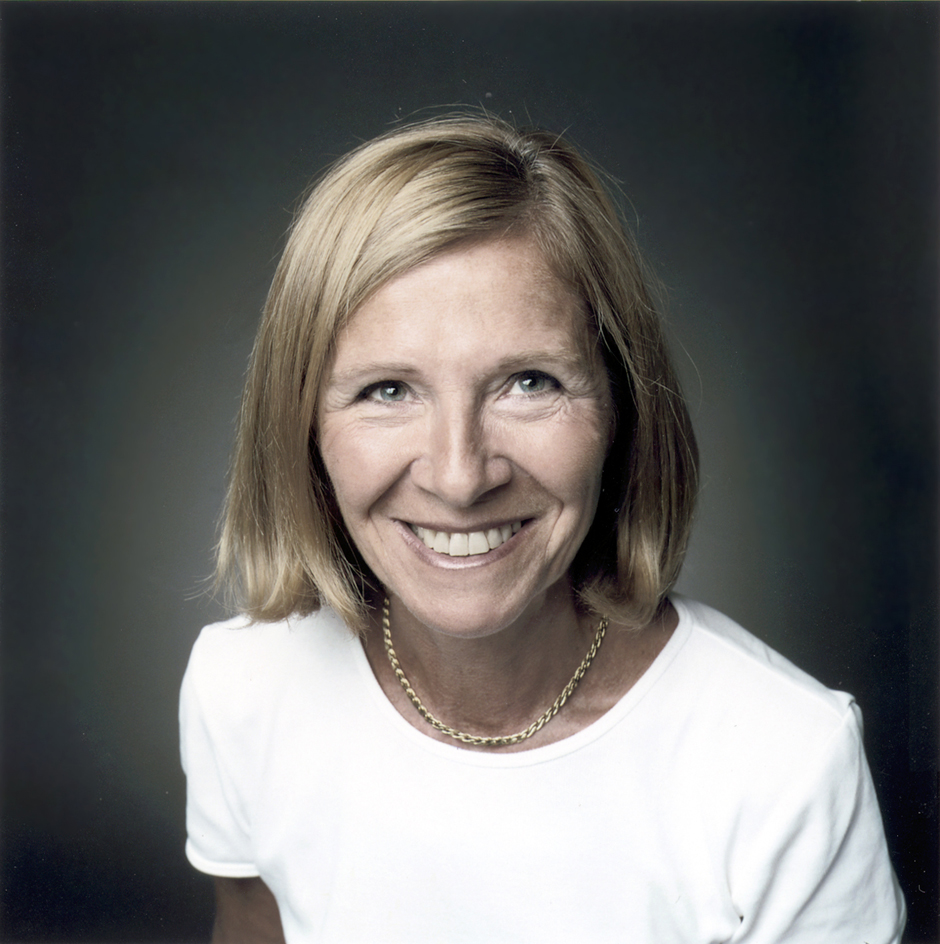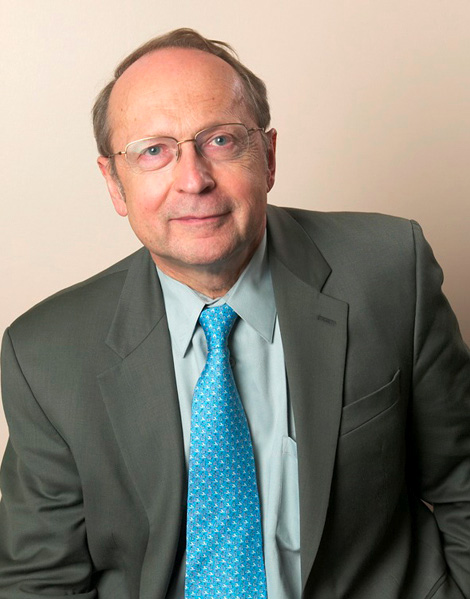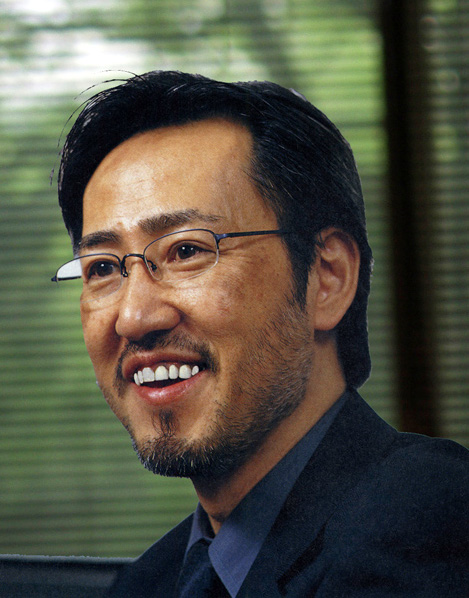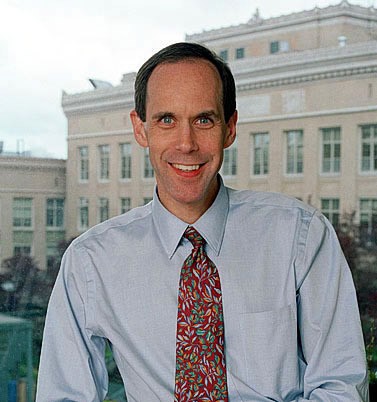Robert Koch Award
The Robert Koch Award is one of the most prestigious scientific awards in the Federal Republic of Germany. The prize is awarded annually to researchers for outstanding and internationally recognized scientific achievements. The Federal Ministry of Health has supported the prize for years and finances half of the prize money, which was increased in 2017 from 100,000 to 120,000 euros.
Robert Koch Award 2019
Rino Rippuoli (Italy)
Robert Koch Award 2019
For Rino Rappuoli, developing a new type of vaccine has always been a matter of great personal importance. Every time when in his native Siena he passed the façade of the “New Cathedral”, which was never completed, he was reminded of the year 1348, when the Plague carried off two-thirds of the population within just three months. The technological and artistic development of the city came to an abrupt halt. “Such a thing should never happen again”, says Rappuoli, “so I decided to devote my entire life to developing vaccines.” His work has paid off. Rino Rappuoli has written medical history with a series of spectacular achievements. The “reverse vaccinology” developed by him, which works on the principle that one starts with the genome of a pathogen, rather than laboriously creating it in the laboratory, was a paradigm change.Robert Koch Award 2018
For Jeffrey V. Ravetch, a childhood dream has come true. “I always had this hope as a child that one day I could say that I had researched a disease, understood how it works, developed a therapeutic drug to counteract it and had proven how this medication changes the course of the disease,” he told the BioTechniques journal in 2008. “Finally, I’ve succeeded.” With a recombinant gamma globulin, the US researcher opened up the possibility of treating autoimmune diseases such as arthritis or lupus far more effectively in the future than has been the case so far. The second and third generation of therapeutic antibodies against cancer would not exist without Ravetch. Some of them are already approved for use. Others are in the final phase of clinical tests.
Robert Koch Award 2017, together with Rafi Ahmed
Antonio Lanzavecchia is considered one of the most influential modern immunologists. Besides its immense range, the scientist’s comprehensive oeuvre is characterized by the great vision with which he investigated the molecular details of human immune response. For Lanzavecchia, this was always associated with the hope of better vaccines and more effective immunotherapies. Fundamental studies of the highly efficient division of labor between antigen-specific T- and B-cells in adaptive immune response were followed by in-depth cell biology research into the maturation process of dendritic cells in the mid-90s. They are the sentries of our immune system, and as such are responsible for stopping intruding pathogens and antigens, and presenting them to the cells of the immune system.
Lanzavecchia’s distinction of two functionally different main groups of memory T-cells – which he termed “central memory T-cells” in the lymphatic organs and the “effector memory T-cells” in the peripheral tissue – is now an essential part of modern immunology. This is particularly relevant for development of T-cell-based vaccines. For Lanzavecchia, fundamental immunology research is therefore always a means to an end. That is also true of immunotherapies with monoclonal antibodies, which increasingly attracted his attention. Using revolutionary technologies, the researcher succeeded in cloning human memory T-cells and then also virus-specific memory B-cells, which produce high quantities of tailored antibodies. Lanzavecchia has repeatedly succeeded in isolating pathogen-neutralizing antibodies from the blood of infected patients, testing them and then producing them in large quantities in an astonishingly short time – for example for SARS, Ebola, avian flu or human cytomegalovirus (HCMV). He made headlines worldwide by discovering a natural “super-antibody”, which detects all 16 sub-types of influenza A-viruses by binding to a conserved fragment of the viral membrane protein hemagglutinin – justifying the hope that a universal flu vaccine is possible. Lanzavecchia is certainly convinced that vaccination strategies like this are the future.
Robert Koch Award 2017, together with Antonio Lanzavecchia
Rafi Ahmed will receive the Robert Koch Award for his pioneering studies on im-munological memory and T cell exhaustion, which have also proven highly fruitful for clinical research and treatment. His research centered on how memory cells can store an immune response for a practically unlimited time, once learned. Several of his papers were real game-changers, with Ahmed marking a radical departure from dogmas previously presumed to be reliable. For example, this is true of his proof that virus-specific memory CD8 T cells do not require a permanent stimulus with low quantities of corresponding antigens, as was believed until the mid-1990s. On the contrary, it is a property inherent in these cells themselves, which permits them to respond faster and more effectively on re-infection. Ahmed’s studies also defined long-lived plasma cells in the bone marrow that are responsible for maintaining antibody responses after infection or vaccination.
A milestone in Ahmed’s research was the discovery of T cell exhaustion during chronic viral infections and showing that the PD-1 inhibitory receptor is the major brake on these chronically stimulated T cells. It had long been known that chronic infections are associated with decreased T cell immunity and it was assumed that either the virus specific T cell responses were not generated or these T cells had been deleted. Ahmed’s studies showed that virus specific CD8 T cells were indeed present during chronic infection but their function was compromised. This finding suddenly presented the opportunity of breathing new life into these exhausted T cells and reviving their function. Ahmed then showed that exhausted CD8 T cells expressed high levels of the PD-1 inhibitory receptor and that in vivo blockade of this inhibitory pathway restores function in exhausted cells and results in viral control. This linking of T cell exhaustion with PD-1 has had a significant impact on the development of PD-1 directed immunotherapy for chronic infections and cancer.
PD-1 inhibitors have been clinically tested and are already approved for the treatment of several different cancers including lung, melanoma, bladder, etc. Rafi Ahmed believes that these new treatment strategies hold a lot of as yet untapped potential. His laboratory is currently seeking other factors that impede the immune system and is using a rational approach for combination therapy with PD-1 blockade including the use of therapeutic vaccines. While making his fundamental discoveries, Ahmed established one of the world’s largest vaccine research center at Emory University in Atlanta, which strives to find vaccines for HIV, hepatitis, tuberculosis, malaria and a universal flu vaccine, among others.
PD-1 inhibitors have been clinically tested and are already approved for the treatment of several different cancers including lung, melanoma, bladder, etc. Rafi Ahmed believes that these new treatment strategies hold a lot of as yet untapped potential. His laboratory is currently seeking other factors that impede the immune system and is using a rational approach for combination therapy with PD-1 blockade including the use of therapeutic vaccines. While making his fundamental discoveries, Ahmed established one of the world’s largest vaccine research center at Emory University in Atlanta, which strives to find vaccines for HIV, hepatitis, tuberculosis, malaria and a universal flu vaccine, among others.
Robert Koch Award 2016, together with Michel C. Nussenzweig
Professor Alberto Mantovani is being recognized for his pioneering work on the link between inflammation and cancer. With his observations that cells of the innate immune system accumulate around certain cancer foci, he opened up an entirely new field of research. Mantovani was able to prove that phagocytes, which are involved in the natural inflammatory response, can be reprogramed in the oxygen-deficient microenvironment of tumors and influence tumor growth. The so-called “tumor-associated macrophages” behave as “corrupted policemen”: they promote cancer cell proliferation, release angiogenic factors that encourage new blood vessels to grow into the tumor and, by releasing enzymes, make the surrounding tissue more permeable to tumor cells, which can promote the formation of metastases. They also contribute to taming effective anti-tumor immunity by triggering molecular breaks called checkpoints in lymphocytes.
By characterizing the involved chemokines and their receptors, Mantovani was able to demonstrate how a chronic inflammatory response promotes the development and metastasis of cancer. These studies paved the way to a change in paradigm on the nature of cancer, from a tumor cell-centric view to one that includes corruption and taming of immune cells as an essential component of the “ecological niche” of neoplasia. This shift in vision is now reflected in the development of immunotherapy approaches targeting checkpoints and corrupted policemen.
Robert Koch Award 2016, together with Alberto Mantovani
Michel C. Nussenzweig’s groundbreaking work uncovered broad and potent neutralizing antibodies to HIV-1 and established that they are a safe and effective immunotherapeutic for infected humans. Nussenzweig addressed a fundamental issue in immunology – the lack of a detailed understanding of the human antibody response – by developing robust and scalable methods for the cloning of antibody genes from single human B cells. He first applied this approach to define how tolerance develops in normal individuals and later to the HIV-1 antibody problem.
Antibodies that neutralize HIV-1 were first isolated early in the epidemic. Although these antibodies protected macaques from infection, the doses were so high that it led the field to abandon antibody-based vaccines and therapies. Nussenzweig’s discoveries of potent anti-HIV antibodies have re-energized the vaccine field and opened the door to new antibody based methods for HIV-1 prevention and therapy.
Nussenzweig made the key breakthrough in this area by applying his antibody cloning techniques to anti-HIV antibodies. His work, and that of others that rapidly adopted his methods, led to the discovery of naturally arising anti-HIV antibodies that were orders of magnitude more potent than previously known antibodies. Moreover, they revealed novel targets of vulnerability. The new antibodies neutralized up to 95% of all HIV-1 strains individually, and nearly all known strains when combined even at very low concentrations.
Antibodies that neutralize HIV-1 were first isolated early in the epidemic. Although these antibodies protected macaques from infection, the doses were so high that it led the field to abandon antibody-based vaccines and therapies. Nussenzweig’s discoveries of potent anti-HIV antibodies have re-energized the vaccine field and opened the door to new antibody based methods for HIV-1 prevention and therapy.
Nussenzweig made the key breakthrough in this area by applying his antibody cloning techniques to anti-HIV antibodies. His work, and that of others that rapidly adopted his methods, led to the discovery of naturally arising anti-HIV antibodies that were orders of magnitude more potent than previously known antibodies. Moreover, they revealed novel targets of vulnerability. The new antibodies neutralized up to 95% of all HIV-1 strains individually, and nearly all known strains when combined even at very low concentrations.
The antibody cloning experiments revealed that anti-HIV-1 antibodies differ from antibodies to nearly all other pathogens in their high rate of somatic mutation. This observation led Nussenzweig to propose the idea that these antibodies arise by sequential, iterative rounds of antibody mutation, selection, and viral escape. Nussenzweig went on to establish that sequential immunization can elicit such antibodies in mouse models and his ideas are the basis for new vaccination trials in humans.
In addition to his work on vaccines, Nussenzweig established that passive administration of the antibodies he cloned can control infection in humanized mice and in macaques chronically infected with SHIV. Moreover, he showed that a single antibody injection can protect macaques from SHIV infection for up to 23 weeks and he established a relationship between antibody concentration in serum and protective activity.
The results obtained in Nussenzweig’s pre-clinical studies led him to conduct phase 1 clinical trials in HIV-1 infected individuals. His groundbreaking studies in humans established that antibodies are safe and effective for HIV-1 prevention and therapy in humans. A single infusion of one of his antibodies, 3BNC117, was well-tolerated, rapidly decreased viral loads in viremic individuals by an average of 1.48 logs, and this effect remained significant for 4 weeks. In addition, the antibody infusions activated endogenous host immune responses against the virus, and accelerated the clearance of virus and infected cells.
Based on his results Nussenzweig proposed that antibodies might be administered on a quarterly or bi-annual basis for therapy or passive protection in humans. Clinical trials to test this idea are currently underway.
In addition to his work on vaccines, Nussenzweig established that passive administration of the antibodies he cloned can control infection in humanized mice and in macaques chronically infected with SHIV. Moreover, he showed that a single antibody injection can protect macaques from SHIV infection for up to 23 weeks and he established a relationship between antibody concentration in serum and protective activity.
The results obtained in Nussenzweig’s pre-clinical studies led him to conduct phase 1 clinical trials in HIV-1 infected individuals. His groundbreaking studies in humans established that antibodies are safe and effective for HIV-1 prevention and therapy in humans. A single infusion of one of his antibodies, 3BNC117, was well-tolerated, rapidly decreased viral loads in viremic individuals by an average of 1.48 logs, and this effect remained significant for 4 weeks. In addition, the antibody infusions activated endogenous host immune responses against the virus, and accelerated the clearance of virus and infected cells.
Based on his results Nussenzweig proposed that antibodies might be administered on a quarterly or bi-annual basis for therapy or passive protection in humans. Clinical trials to test this idea are currently underway.
Robert Koch Award 2015, together with Charles M. Rice
The Robert Koch laureate Professor Ralf Bartenschlager is Executive Director of the Department of Molecular Virology at the University of Heidelberg, Germany. At the same time, Bartenschlager is head of the infection and cancer program at the German Cancer Research Center (DKFZ) in Heidelberg. The second laureate, Dr. Charles M. Rice, is Scientific and Executive Director of the interdisciplinary “Center for the Study of Hepatitis C” at The Rockefeller University, New York, USA. Both laureates are credited with helping to understand the HCV lifecycle, identifying promising antiviral targets, and establishing reproducible cell culture systems for basic studies that could also be used for drug screening and testing.
In chronic cases, HCV infection can result in liver cirrhosis and cancer. With new treatment options catalyzed by these basic discoveries, it is now possible to eliminate the virus permanently in the vast majority of patients treated. Worldwide, approximately 170 million people are infected with HCV, including an estimated 400,000 to 500,000 people in Germany.
Robert Koch Award 2015, together with Ralf Bartenschlager
The Robert Koch laureate Dr. Charles M. Rice, is Scientific and Executive Director of the interdisciplinary “Center for the Study of Hepatitis C” at The Rockefeller University, New York, USA. The second laureate, Professor Ralf Bartenschlager is Executive Director of the Department of Molecular Virology at the University of Heidelberg, Germany. Both laureates are credited with helping to understand the HCV lifecycle, identifying promising antiviral targets, and establishing reproducible cell culture systems for basic studies that could also be used for drug screening and testing.
In chronic cases, HCV infection can result in liver cirrhosis and cancer. With new treatment options catalyzed by these basic discoveries, it is now possible to eliminate the virus permanently in the vast majority of patients treated. Worldwide, approximately 170 million people are infected with HCV, including an estimated 400,000 to 500,000 people in Germany.
Robert Koch Award 2014, together with Alain Fischer
This year the Robert Koch Foundation’s €100,000 Robert Koch Award is being equally divided between Professors Jean-Laurent Casanova from Rockefeller University / Howard Hughes Medical Institute, New York, USA, and Alain Fischer from the Collège de France and Imagine Institute, Hôpital Necker-Enfants-Malades, Paris, France. The two scientists are being honored for their groundbreaking work on understanding host genes and their products in infectious diseases.
Professor Jean-Laurent Casanova heads the St. Giles Laboratory of Human Genetics of Infectious Disease at Rockefeller University, New York, USA. The pediatric immunologist pursued the question as to why some children develop severe infectious diseases after coming into contact with certain pathogens, while most other children do not. In his pioneering research, Casanova and his colleagues discovered “holes” in the immune systems of otherwise healthy children that make them susceptible to specific, sometimes life-threatening infectious diseases. These “holes” are caused by congenital mutations in a single gene, and are responsible for the susceptibility to certain infections including mycobacterial diseases, herpes simplex virus encephalitis, invasive pneumococcal disease, chronic mucocutaneous candidiasis, or Kaposi sarcoma.
The practical implementations of these findings include molecular diagnosis and genetic counselling for the patients and their families as well as the development of targeted therapies with recombinant cytokines aimed at restoring a deficient immune response.
The practical implementations of these findings include molecular diagnosis and genetic counselling for the patients and their families as well as the development of targeted therapies with recombinant cytokines aimed at restoring a deficient immune response.
Robert Koch Award 2014, together with Jean-Laurent Casanova
This year the Robert Koch Foundation’s €100,000 Robert Koch Award is being equally divided between Professors Jean-Laurent Casanova from Rockefeller University / Howard Hughes Medical Institute, New York, USA, and Alain Fischer from the Collège de France and Imagine Institute, Hôpital Necker-Enfants-Malades, Paris, France. The two scientists are being honored for their groundbreaking work on understanding host genes and their products in infectious diseases.
Professor Alain Fischer, who is the Director of the Research Institute for Genetic Diseases at the Hôpital Necker-Enfants Malades, Paris, France, is also involved in discovering “holes” or switching errors in the immune system – congenital immune defects. As a result of his groundbreaking research work and the gene therapy method developed by him, he is considered one of the pioneers in this field. For example, the pediatric immunologist was the first scientist to successfully deploy gene therapy with young patients with severe combined immunodeficiency (SCID gc).
In addition to gene therapy and the genetics of immunological disorders, the main focus of his work is concerned with researching the lymphoid system, which plays an important role in the immune defenses against pathogens.
In addition to gene therapy and the genetics of immunological disorders, the main focus of his work is concerned with researching the lymphoid system, which plays an important role in the immune defenses against pathogens.
Robert Koch Award 2013
The microbiologist Jeffrey Gordon was honored for his pioneering work on the molecular analysis of microbial communities that live in the human gut. His work has contributed to our knowledge that microbes are not just ‘enemies’ to be dealt with because they can cause disease, but rather beneficial ‘friends’, and that we are a splendid amalgamation of microbial and human cells and genes. As such, microbes form an interactive alliance with the body, shaping many aspects of our physiology, metabolism and immunology.
Professor Gordon’s work on the genomic and metabolic foundations of our alliances with gut microbes has contributed significant new understanding about the basis for health and well-being, including our nutritional status, and has opened the door to new therapeutic approaches for 21st century medicine.
Robert Koch Award 2012
Tasuku Honjo, the 2012 Robert Koch Award laureate, is being awarded this year’s Nobel Prize in Physiology or Medicine. The award to Honjo brings the number of Robert Koch Foundation laureates to receive a Nobel Prize to 12 since 1975.
The Nobel Prize in Physiology or Medicine 2018 is being awarded jointly to Tasuku Honjo of Kyoto University in Japan, and James P. Allison from the University of Texas in Houston, USA. According to the prize committee at the Karolinska Institutet in Stockholm, the researchers were awarded this prestigious prize “for their discovery of cancer therapy by inhibition of negative immune regulation.”
The Robert Koch Foundation congratulates Honjo on his achievement: „We are delighted that a Robert Koch Foundation laureate has once again received recognition for his research by being awarded a Nobel Prize“, said Professor Jörg Hacker, Chairman of the Scientific Advisory Council and Deputy Chairman of the Board of Directors of the Robert Koch Foundation.
The Nobel Prize in Physiology or Medicine 2018 is being awarded jointly to Tasuku Honjo of Kyoto University in Japan, and James P. Allison from the University of Texas in Houston, USA. According to the prize committee at the Karolinska Institutet in Stockholm, the researchers were awarded this prestigious prize “for their discovery of cancer therapy by inhibition of negative immune regulation.”
The Robert Koch Foundation congratulates Honjo on his achievement: „We are delighted that a Robert Koch Foundation laureate has once again received recognition for his research by being awarded a Nobel Prize“, said Professor Jörg Hacker, Chairman of the Scientific Advisory Council and Deputy Chairman of the Board of Directors of the Robert Koch Foundation.
The Robert Koch Foundation conferred the 2012 Robert Koch Award with prize money of 100,000 euros on Professor Tasuku Honjo from the Institute for Immunology and Genomic Medicine at Kyoto University Graduate School of Medicine in Japan.
Tasuku Honjo was honoured for his pioneering work on molecular immunology and medicine. He explained fundamental mechanisms used by the immune system to combat pathogens, which improve antigen binding and elimination. This includes somatic hypermutation, a molecular mechanism via which specific antibodies to antigens are formed. Honjo found that the AID enzyme (activation-induced cytidine deaminase) he discovered changes the binding point of the antibody via somatic hypermutation, as well as the function of the antibodies by replacing parts of the antibody genes. This is known as class switch recombination. The mutation rate is roughly one million times higher than the natural mutation rate, which is why it is called hypermutation.
Besides the pioneering discovery of class switch recombination, Honjo also discovered the PD-1 molecule (programmed cell death 1), a negative co-receptor in the effector phase of immune response. A modulation of PD-1 can help treat viral infections, autoimmune reactions and tumours. Accordingly, Honjo’s scientific discoveries are vital to our understanding of immunity, immune diseases and cancer biology.
Tasuku Honjo was honoured for his pioneering work on molecular immunology and medicine. He explained fundamental mechanisms used by the immune system to combat pathogens, which improve antigen binding and elimination. This includes somatic hypermutation, a molecular mechanism via which specific antibodies to antigens are formed. Honjo found that the AID enzyme (activation-induced cytidine deaminase) he discovered changes the binding point of the antibody via somatic hypermutation, as well as the function of the antibodies by replacing parts of the antibody genes. This is known as class switch recombination. The mutation rate is roughly one million times higher than the natural mutation rate, which is why it is called hypermutation.
Besides the pioneering discovery of class switch recombination, Honjo also discovered the PD-1 molecule (programmed cell death 1), a negative co-receptor in the effector phase of immune response. A modulation of PD-1 can help treat viral infections, autoimmune reactions and tumours. Accordingly, Honjo’s scientific discoveries are vital to our understanding of immunity, immune diseases and cancer biology.
Robert Koch Award 2011
Professor Galán, who chairs the Section of Microbial Pathogenesis in the Boyer Center for Molecular Medicine at the Yale School of Medicine in New Haven, USA, was awarded the prize for his fundamental research on the molecular analysis of pathogenic mechanisms, as well as for his significant role in establishing cellular microbiology as a scientific field.
Galán studied the processes by which numerous pathogens deliver their proteins to the host cells of humans, animals, plants and insects and then alter their functions. These mechanisms ensure the survival of the pathogens, while triggering an infection in the host. Galán and his team focussed principally on the pathogens Salmonella enterica and Campylobacter jejuni as the main causes of infectious gastroenteritis worldwide and responsible for an estimated 2,000,000 deaths every year.
The multidisciplinary team of experts in genetics, cell biology and immunology investigated the mechanisms of infection. One of the scientists’ fundamental discoveries was proof that a specialised organelle (area of a cell with a special function) in Salmonella enterica was responsible for delivering virulence proteins into the host cells.
The scientists are hoping that this crucial information will enable them to understand the mechanisms of numerous other bacterial infections, such as typhus, cholera and food poisoning The ultimate aim in revealing these molecular processes is the development of new strategies with which to combat such diseases.
The multidisciplinary team of experts in genetics, cell biology and immunology investigated the mechanisms of infection. One of the scientists’ fundamental discoveries was proof that a specialised organelle (area of a cell with a special function) in Salmonella enterica was responsible for delivering virulence proteins into the host cells.
The scientists are hoping that this crucial information will enable them to understand the mechanisms of numerous other bacterial infections, such as typhus, cholera and food poisoning The ultimate aim in revealing these molecular processes is the development of new strategies with which to combat such diseases.
Robert Koch Award 2010
The Robert Koch Foundation presented the 2010 Robert Koch Award, along with 100,000 euros in prize money, to Professor Dr. Max Dale Cooper, Atlanta, USA.
Professor Cooper, a fundamental researcher in immunology and infection biology at the Emory University School of Medicine in Atlanta, was awarded the Robert Koch Medal and prize money in recognition of his pioneering studies into evolution and development of the adaptive immune system in vertebrates. The immunologist has also made a series of discoveries which contribute to understanding how white blood cells (leukocytes) combat infections in the body and how they degenerate in leukaemia (blood cancer) and lymphomas (cancer of the lymph nodes) and attack the patient’s body in autoimmune diseases. Cooper also laid the foundations for much important progress in illuminating infectious diseases and developing vaccines.
Professor Cooper, a fundamental researcher in immunology and infection biology at the Emory University School of Medicine in Atlanta, was awarded the Robert Koch Medal and prize money in recognition of his pioneering studies into evolution and development of the adaptive immune system in vertebrates. The immunologist has also made a series of discoveries which contribute to understanding how white blood cells (leukocytes) combat infections in the body and how they degenerate in leukaemia (blood cancer) and lymphomas (cancer of the lymph nodes) and attack the patient’s body in autoimmune diseases. Cooper also laid the foundations for much important progress in illuminating infectious diseases and developing vaccines.
Currently, Cooper and his team are studying a new class of antibody-like proteins produced by the immune systems of certain fish, the eel-like lamprey and hagfish. The proteins have unique properties,
Robert Koch Award 2009
The Robert Koch Foundation has given the 2009 Robert Koch Award, worth a total of EUR 100,000, to Dr. Carl Nathan.
Dr. Nathan, Chairman of Microbiology and Immunology and Professor of Microbiology at Weill Cornell Medical College in New York City, USA, has been honored for his groundbreaking research into the mechanisms of antibacterial infection resistance. He was able to show that an inorganic gas, nitrogen monoxide (NO), is formed by activated macrophages and plays a role in defending the body against pathogens.
Dr. Nathan, Chairman of Microbiology and Immunology and Professor of Microbiology at Weill Cornell Medical College in New York City, USA, has been honored for his groundbreaking research into the mechanisms of antibacterial infection resistance. He was able to show that an inorganic gas, nitrogen monoxide (NO), is formed by activated macrophages and plays a role in defending the body against pathogens.
Although macrophages attack the microbes with chemicals such as NO, tuberculosis bacteria are able to dodge the body’s immune defenses and embed themselves as dormant pathogens in the macrophages. They use mycobacterial metallothionein (MymT), the protein isolated by Dr. Nathan, to act as a barrier against attack by the macrophages. A further discovery made by Dr. Nathan and his team is the enzyme dihydrolipoamide acetyltransferase (DlaT), which provides the tuberculosis bacteria with energy and also helps to protect them against attack by the immune cells. The scientists are now looking for active substances which inhibit DlaT and can thus destroy pathogens which have entered the body.
Robert Koch Award 2008, together with Shinya Yamanaka and Irving Weissman
On November 14, the Robert Koch Foundation awarded the 2008 Robert Koch Award, endowed with a total of €100,000, jointly to Professor Hans Robert Schöler, Professor Irving Weissman and Professor Shinya Yamanaka.
Professor Schöler, who is Director of the Max Planck Institute of Molecular Biomedicine in Münster, received the prize in recognition of his pioneering research into the isolation, induction and functional analysis of stem cells.
Professor Schöler, who is Director of the Max Planck Institute of Molecular Biomedicine in Münster, received the prize in recognition of his pioneering research into the isolation, induction and functional analysis of stem cells.
His scientific achievements include the discovery of the transcription factor Oct4, which plays a key role in the pluripotency of human embryonic stem cells. This discovery has served as a basis for further research, including his work on cell reprogramming. Professor Schöler was recently able to show that, with the aid of just two genes known as Oct4 und Klf4, adult mouse cells can be returned to a primordial embryonic-like state, with markedly reduced use of viruses. There are many arguments in favor of dispensing with such gene vectors. It would avoid one of the major risks associated with future stem cell therapies, whereby the injected cells develop into tumors. Professor Schöler’s long-term goal is to transform many different somatic cells into pluripotent stem cells and, as a result, to develop a safer therapy for many diseases.
Robert Koch Award 2008, together with Hans Robert Schöler and Shinya Yamanaka
On November 14, the Robert Koch Foundation awarded the 2008 Robert Koch Award, endowed with a total of €100,000, jointly to Professor Hans Robert Schöler, Professor Irving Weissman and Professor Shinya Yamanaka.
Professor Weissman, who is Director of Cancer/Stem Cell Biology and Medicine at Stanford University School of Medicine, USA, received the prize in recognition of his pioneering research into the phylogeny and developmental biology of stem cells of the blood and immune system. Professor Weissman developed a method for isolating stem cells for the hemopoietic system in mice and humans. He also discovered stem cells for nerve tissue, muscles and other organs.
Professor Weissman, who is Director of Cancer/Stem Cell Biology and Medicine at Stanford University School of Medicine, USA, received the prize in recognition of his pioneering research into the phylogeny and developmental biology of stem cells of the blood and immune system. Professor Weissman developed a method for isolating stem cells for the hemopoietic system in mice and humans. He also discovered stem cells for nerve tissue, muscles and other organs.
Furthermore, Professor Weissman managed to show that a single stem cell can divide into thousands of stem cells that then form many millions of blood cells. He also characterized the surface structure of tumor stem cells. This advance allowed high-level purification of human stem cells, for example the cells of the hemopoietic system. Purification is nowadays indispensable, so that stem cells from healthy donors can be transplanted into leukemia patients. This lowers the incidence of life-threatening side effects and consequently increases therapeutic benefit.
Robert Koch Award 2008, together with Hans Robert Schöler and Irving Weissman
On November 14, the Robert Koch Foundation awarded the 2008 Robert Koch Award, endowed with a total of €100,000, jointly to Professor Hans Robert Schöler, Professor Irving Weissman and Professor Shinya Yamanaka.
Professor Yamanaka from the Department of Stem Cell Biology at the Institute for Frontier Medical Sciences at the University of Kyoto in Japan, receives the prize for his pioneering research into the induction and functional analysis of pluripotent stem cells from somatic cells. Two years ago, he and his team were the first to succeed in reprogramming mature skin cells from mice. These then acted like embryonic stem cells and were able to form each of the body’s 200 or so different cell types such as nerve cells, muscle cells and cartilage cells.
Professor Yamanaka from the Department of Stem Cell Biology at the Institute for Frontier Medical Sciences at the University of Kyoto in Japan, receives the prize for his pioneering research into the induction and functional analysis of pluripotent stem cells from somatic cells. Two years ago, he and his team were the first to succeed in reprogramming mature skin cells from mice. These then acted like embryonic stem cells and were able to form each of the body’s 200 or so different cell types such as nerve cells, muscle cells and cartilage cells.
A year later, Professor Yamanaka was able to show that this method also works with human skin cells. His technique was surprisingly simple: the production of pluripotent stem cells required neither eggs nor embryos. The skin cells were reprogrammed into all-rounders simply by inserting four genes, Oct4, Sox2, c-Myc and Klf4, into their genetic material.
Robert Koch Award 2005
Robert Koch Award 2004, together with Jules A. Hoffmann and Bruce A. Beutler
The Robert Koch Foundation has awarded the 2004 Robert Koch Prize, endowed for the first time with €100,000, in equal parts to Professor Jules A. Hoffmann, Professor Bruce A. Beutler and Professor Shizuo Akira. The scientists received the prize for their ground-breaking research into the molecular mechanisms underlying signal recognition, signal transduction and effector functions in innate immunity.
Professor Shizuo Akira, of the Research Institute for Microbial Diseases in Osaka, Japan, is also involved in research into bacterial infections and innate immunity. In his search for intracellular signals, Professor Akira came across MyD88, a control switch for signal transmission of inflammatory stimuli. He was able to switch off MyD88 experimentally and show that the experimental animals no longer responded to inflammatory stimuli. Further experiments made vital contributions to our understanding of TLRs as binding sites which recognize special characteristics of bacterial pathogens. As a result of the work of the three prize-winners, the TLR family is now recognized as a general sensor system which recognizes pathogens as a form of innate immunity.
Professor Shizuo Akira, of the Research Institute for Microbial Diseases in Osaka, Japan, is also involved in research into bacterial infections and innate immunity. In his search for intracellular signals, Professor Akira came across MyD88, a control switch for signal transmission of inflammatory stimuli. He was able to switch off MyD88 experimentally and show that the experimental animals no longer responded to inflammatory stimuli. Further experiments made vital contributions to our understanding of TLRs as binding sites which recognize special characteristics of bacterial pathogens. As a result of the work of the three prize-winners, the TLR family is now recognized as a general sensor system which recognizes pathogens as a form of innate immunity.
Robert Koch Award 2004, together with Jules A. Hoffmann and Shizuo Akira
The Robert Koch Foundation has awarded the 2004 Robert Koch Prize, endowed for the first time with €100,000, in equal parts to Professor Jules A. Hoffmann, Professor Bruce A. Beutler and Professor Shizuo Akira. The scientists received the prize for their ground-breaking research into the molecular mechanisms underlying signal recognition, signal transduction and effector functions in innate immunity.
The prize-winner, Professor Bruce A. Beutler (46), of The Scripps Research Institute in La Jolla, California, USA, showed that TLR-4 in the body is the binding site for endotoxins. Endotoxins are bacterial toxins which indirectly cause fever as a result of the mobilization of the body’s own messenger substances such as tumor necrosis factor (TNF). Beutler demonstrated that antibodies to TNF provide protection against endotoxin shock. The specific blockade of TLR-4 could potentially be a new therapeutic approach.
The prize-winner, Professor Bruce A. Beutler (46), of The Scripps Research Institute in La Jolla, California, USA, showed that TLR-4 in the body is the binding site for endotoxins. Endotoxins are bacterial toxins which indirectly cause fever as a result of the mobilization of the body’s own messenger substances such as tumor necrosis factor (TNF). Beutler demonstrated that antibodies to TNF provide protection against endotoxin shock. The specific blockade of TLR-4 could potentially be a new therapeutic approach.
Robert Koch Award 2004, together with Shizuo Akiran and Bruce A. Beutler
The Robert Koch Foundation has awarded the 2004 Robert Koch Prize, endowed for the first time with €100,000, in equal parts to Professor Jules A. Hoffmann, Professor Bruce A. Beutler and Professor Shizuo Akira. The scientists received the prize for their ground-breaking research into the molecular mechanisms underlying signal recognition, signal transduction and effector functions in innate immunity.
Professor Jules A. Hoffmann (63) is Head of the CNRS Institute for Molecular and Cell Biology in Strasbourg, France. After showing that highly active antibodies to bacteria and fungi are present in the blood of the fruit fly Drosophila, he succeeded in isolating antibiotic substances, and is developing new anti-infectives on the basis of the insects’ antibodies. This research led him to the immunological defense functions of the Toll receptor in insects. He was able to elucidate the signal transmission pathways which are triggered by these binding sites. The Toll receptor in insects is very similar to receptors in humans, which are therefore known as Toll-like receptors, or TLR.
Professor Jules A. Hoffmann (63) is Head of the CNRS Institute for Molecular and Cell Biology in Strasbourg, France. After showing that highly active antibodies to bacteria and fungi are present in the blood of the fruit fly Drosophila, he succeeded in isolating antibiotic substances, and is developing new anti-infectives on the basis of the insects’ antibodies. This research led him to the immunological defense functions of the Toll receptor in insects. He was able to elucidate the signal transmission pathways which are triggered by these binding sites. The Toll receptor in insects is very similar to receptors in humans, which are therefore known as Toll-like receptors, or TLR.
More Laureates
| 2003 Adriano Aguzzi (Schweiz) |
| 2002 Rudolf Jaenisch (USA) |
| 2001 Axel Ullrich (Martinsried) |
| 2000 Stanley Falkow (USA) |
| 1999 Ralph M. Steinman (USA) |
| 1998 Yuan Chang (USA), Patrick S. Moore (USA) |
| 1997 Philippe J. Sansonetti (Frankreich) |
| 1996 Fritz Melchers (Schweiz), Klaus Rajewsky (Köln) |
| 1995 Shigekazu Nagata (Japan), Peter H. Krammer (Heidelberg) |
| 1994 Volkmar Braun (Tübingen), Manuel Elkin Patarroyo Murillo (Kolumbien) |
| 1993 Hans-Georg Rammensee (Heidelberg), Daniel W. Bradley (USA), Michael Houghton (USA) |
| 1992 Kary B. Mullis (USA) |
| 1991 Walter Fiers (Belgien), Tadatsugu Taniguchi (Japan) |
| 1990 Lloyd J. Old (USA) |
| 1989 Irun R. Cohen (Israel), Alex J. van der Eb (Niederlande) |
| 1988 Donald Metcalf (Australien) |
| 1987 Mario Rizzetto (Italien), Rudolf Rott (Gießen), John J. Skehel (Großbritannien) |
| 1986 Susumu Tonegawa (USA) |
| 1985 Stefania Jablonska (Polen), Gérard Ch. J. Orth (Frankreich) |
| 1984 Walter Doerfler (Köln), Stuart F. Schlossman (USA) |
| 1983 Werner Goebel (Würzburg), Robert A. Weinberg (USA) |
| 1982 Raymond L. Erikson (USA), Franz Oesch (Mainz) |
| 1981 Robert M. Chanock (USA), Lars A. Hanson (Schweden) |
| 1980 César Milstein (Großbritannien), Lewis W. Wannamaker (USA) |
| 1979 Ruth Arnon (Israel), Peter Starlinger (Köln) |
| 1978 Albrecht K. Kleinschmidt (Ulm), Heinz L. Sänger (Gießen) |
| 1977 Jean Dausset (Frankreich), Jan J. van Rood (Niederlande) |
| 1976 Richard A. Finkelstein (USA), Mark H. Richmond (Großbritannien) |
| 1975 Harald zur Hausen (Erlangen), Heinz-Günter Wittmann (Berlin) |
| 1974 Norbert Hilschmann (Göttingen) |
| 1973 Jean Lindenmann (Schweiz), Hans G. Schwick (Marburg) |
| 1972 Lubertus Berrens (Niederlande), Alain L. de Weck (Schweiz) |
| 1971 Gertrude und Werner Henle (USA) |
| 1970 William M. Hutchison (Großbritannien), Jorgen C. Siim (Dänemark) |
| 1969 Pirjo Helena Mäkelä (Finnland) |
| 1968 Heinz Stolp (Berlin) |
| 1968 Arthur Brockhaus (Düsseldorf), Hans-Werner Schlipköter (Düsseldorf) |
| 1966 Karl Bartmann (Berlin) |
| 1965 Gertrud Meissner (Borstel) |
| 1963 Tomizo Yoshida (Japan) |
| 1962 John Franklin Enders (USA), Albert Bruce Sabin (USA), Jonas Edward Salk (USA) |
| 1960 Hugo Braun (München), René Jules Dubos (USA), Toshiaki Ebina (Japan), Ludwig Heilmeyer (Freiburg), Franz Redeker (Mehlem), Josef Tomcsik (Schweiz) |

